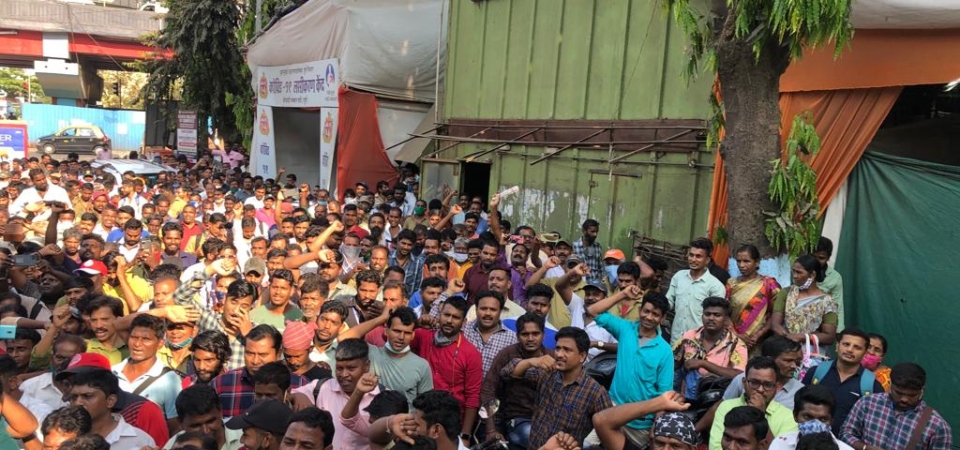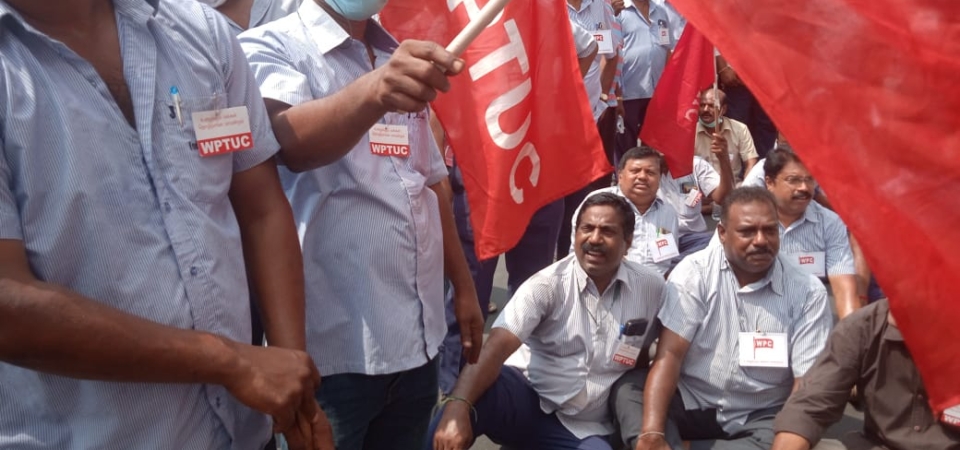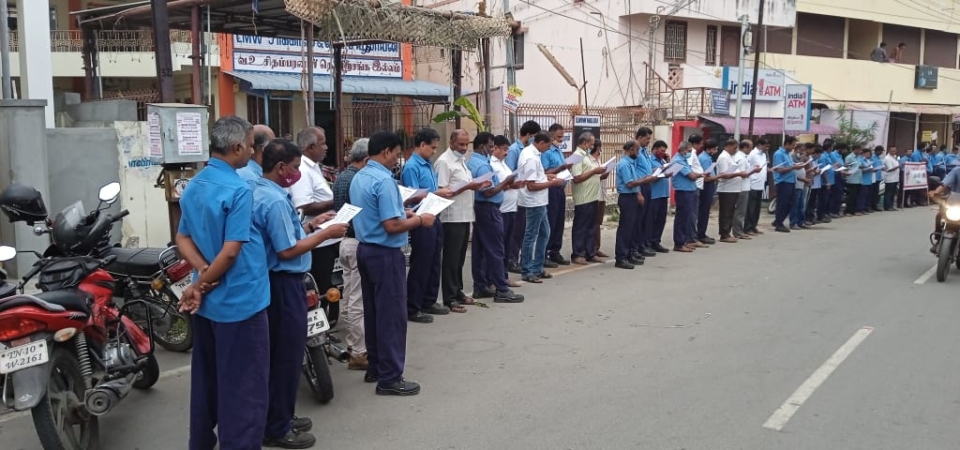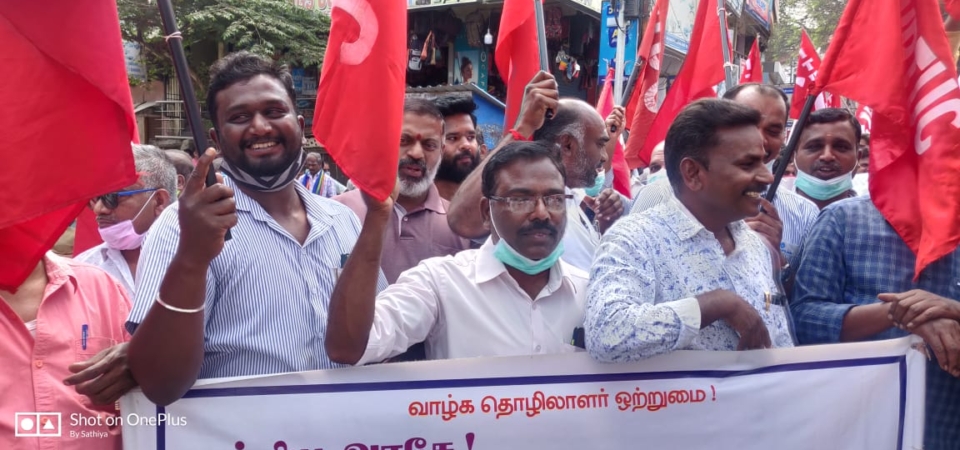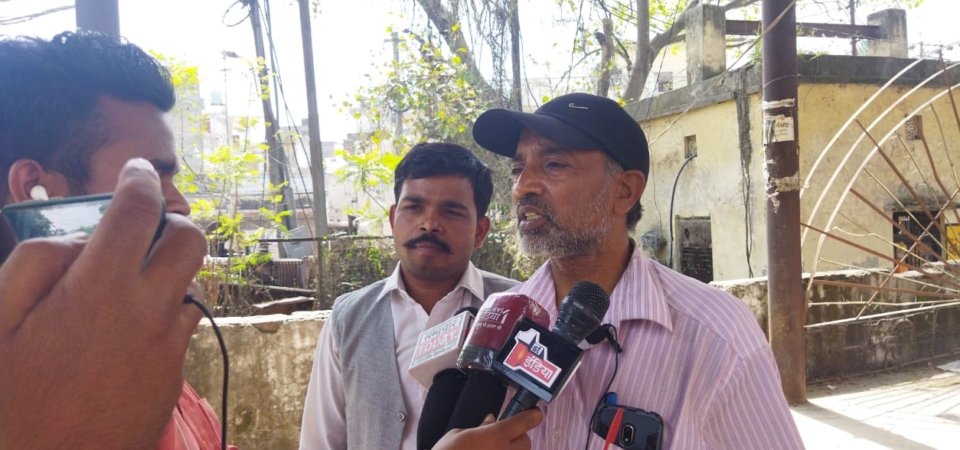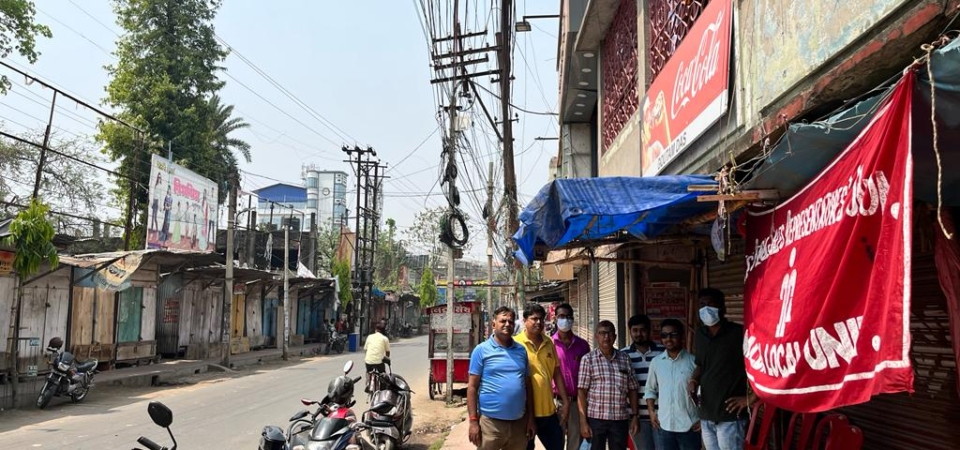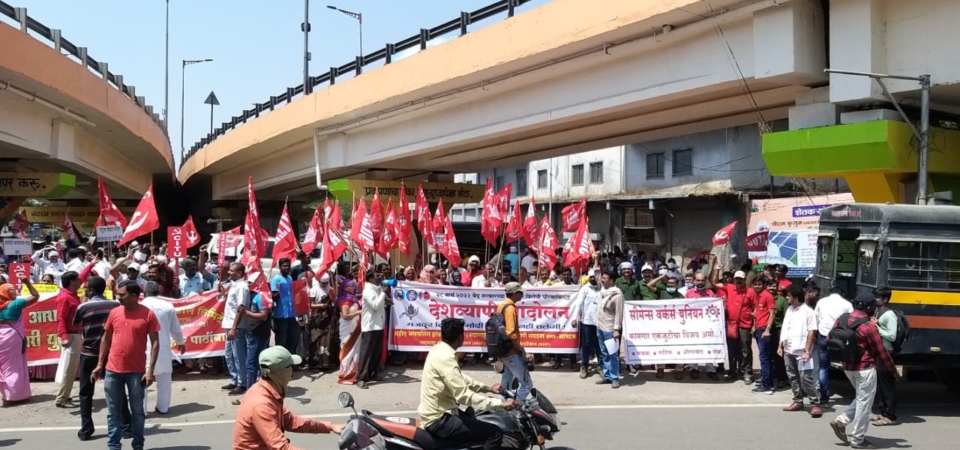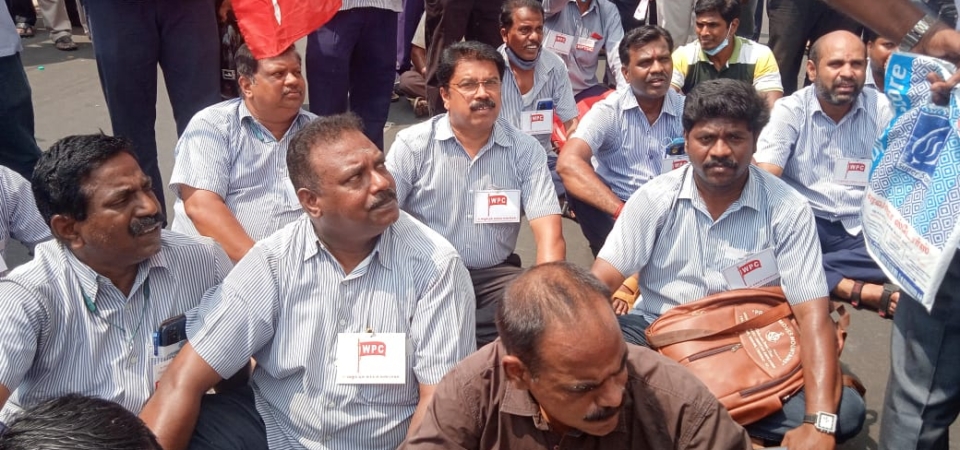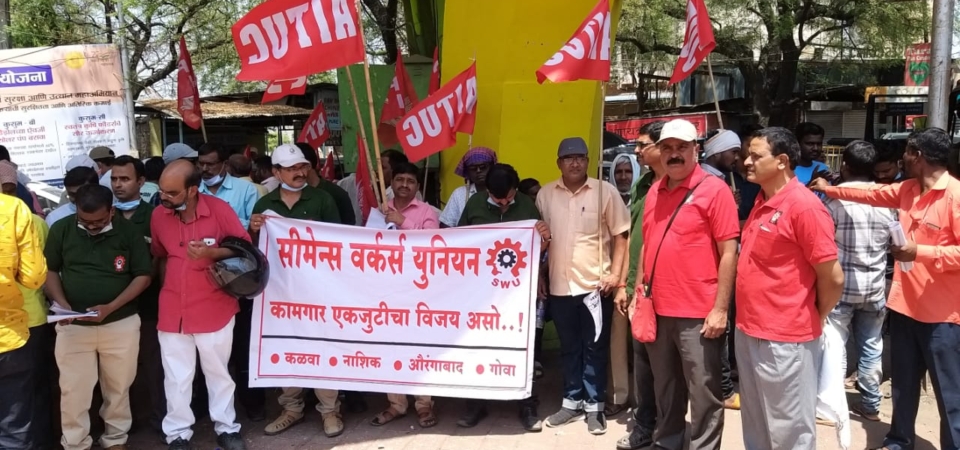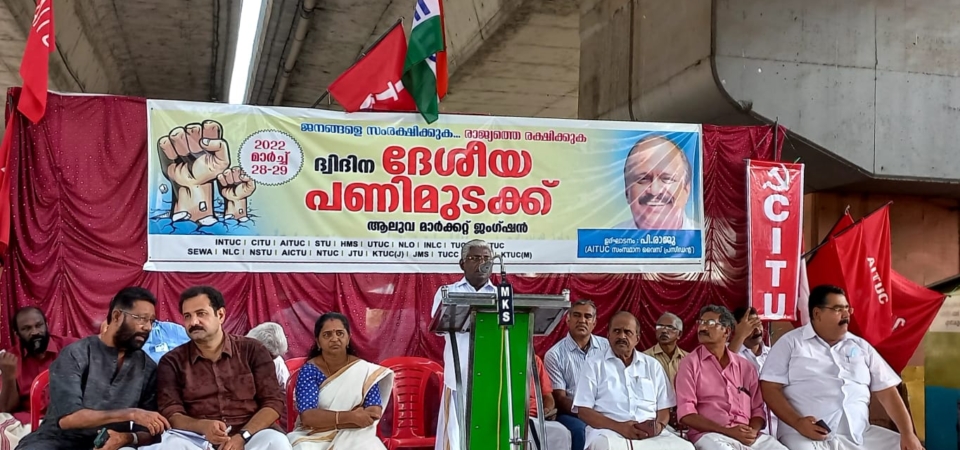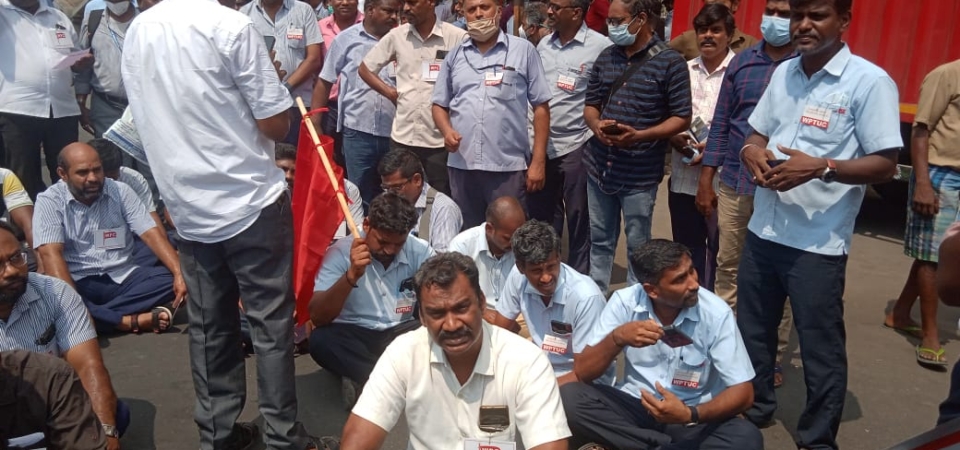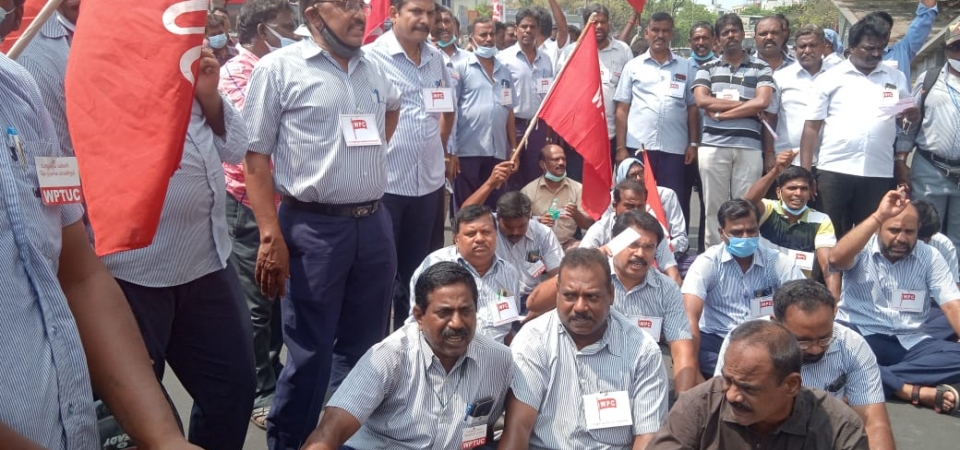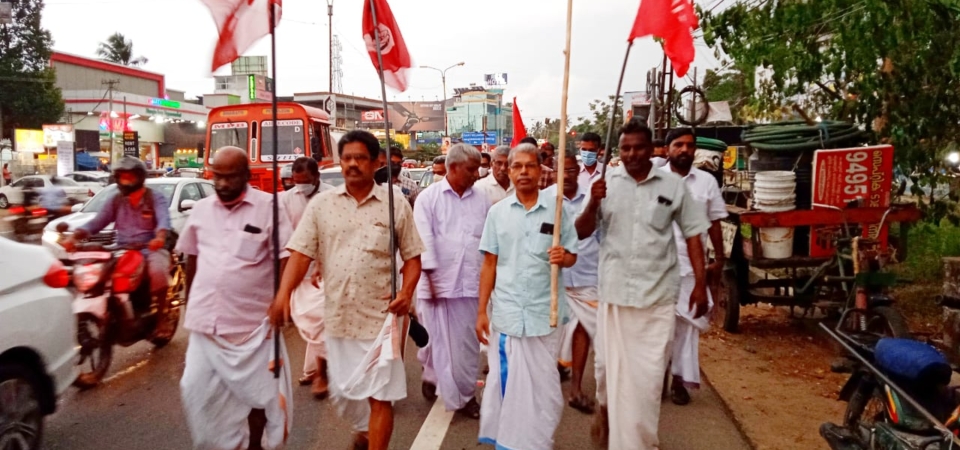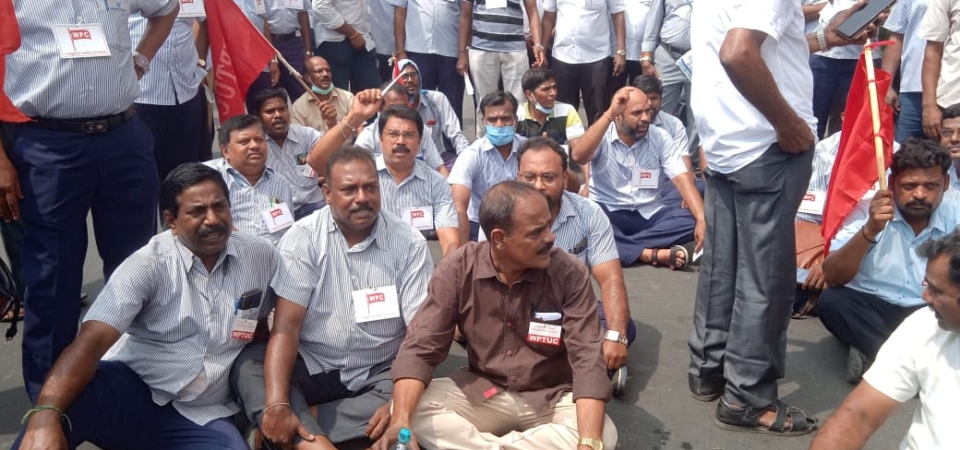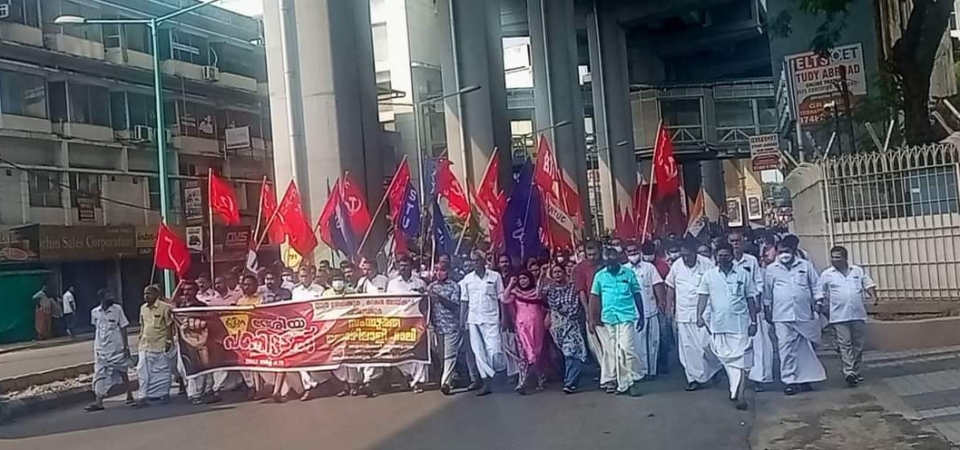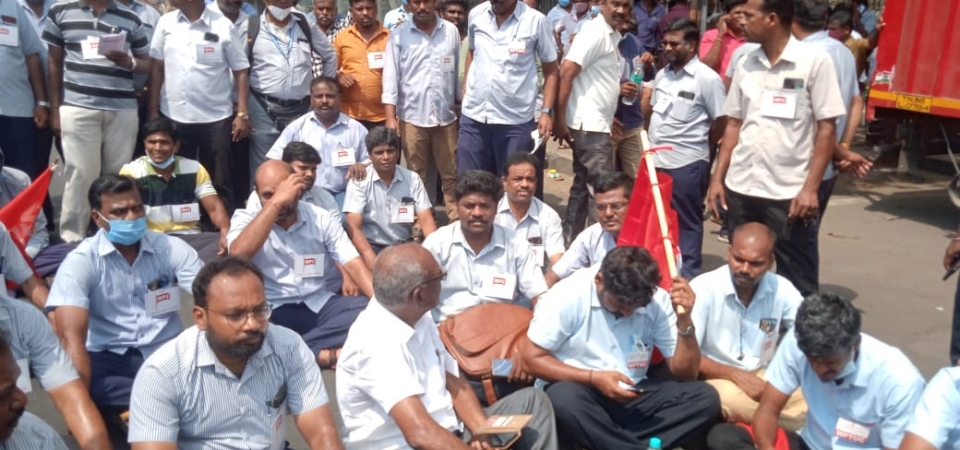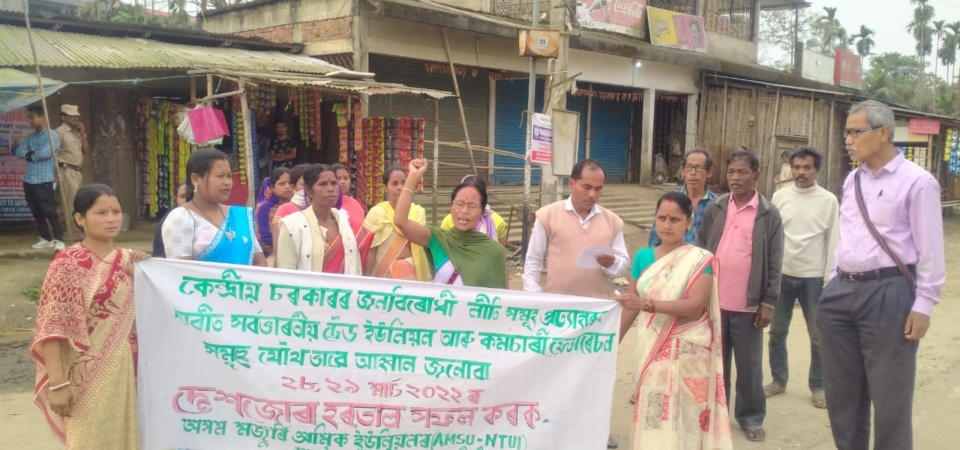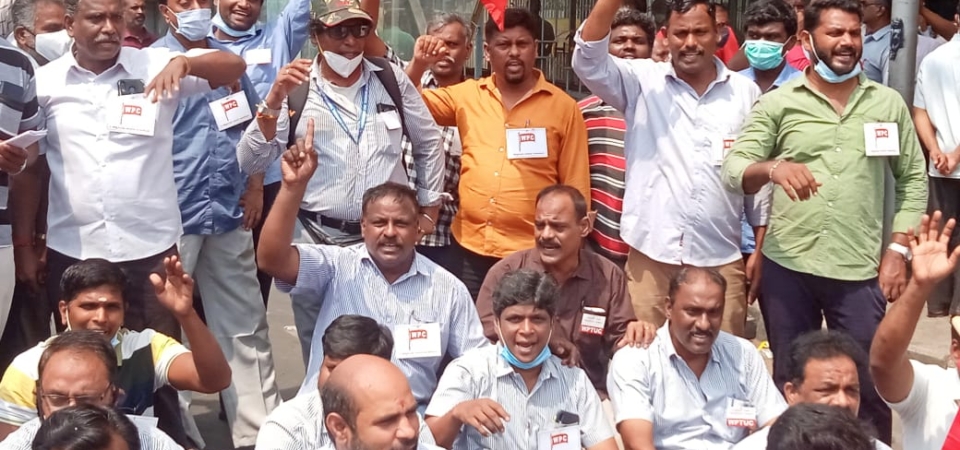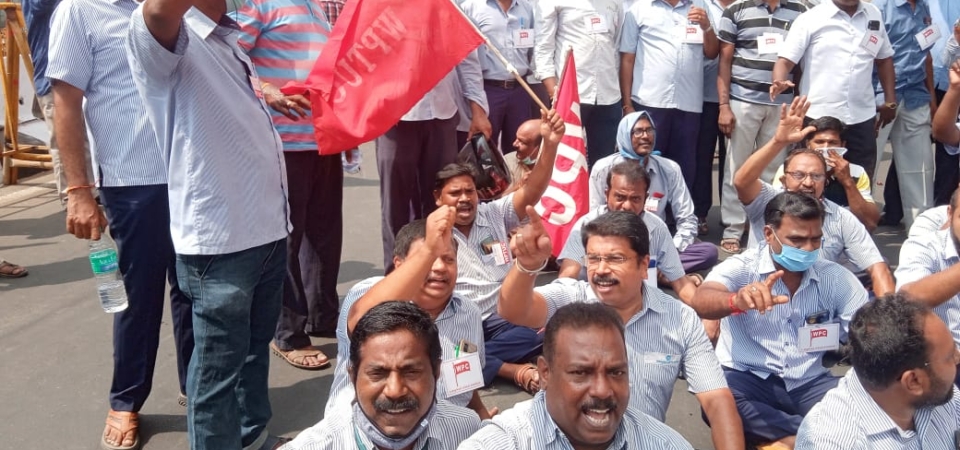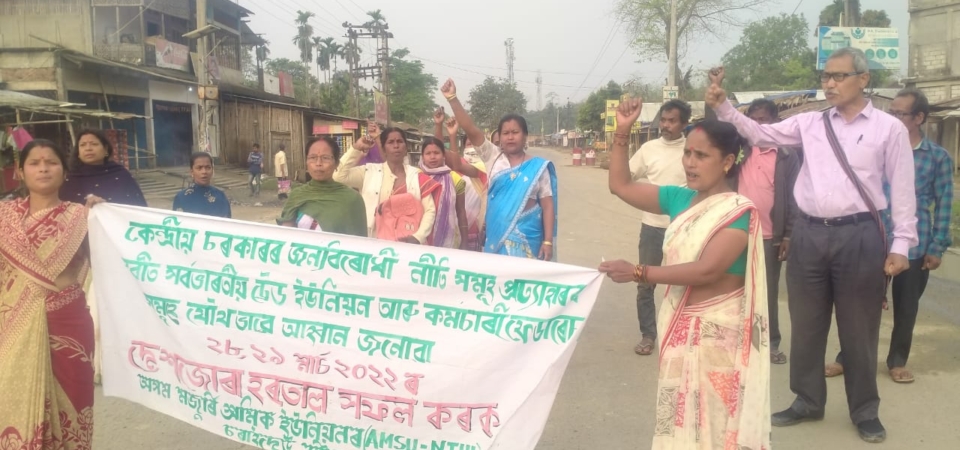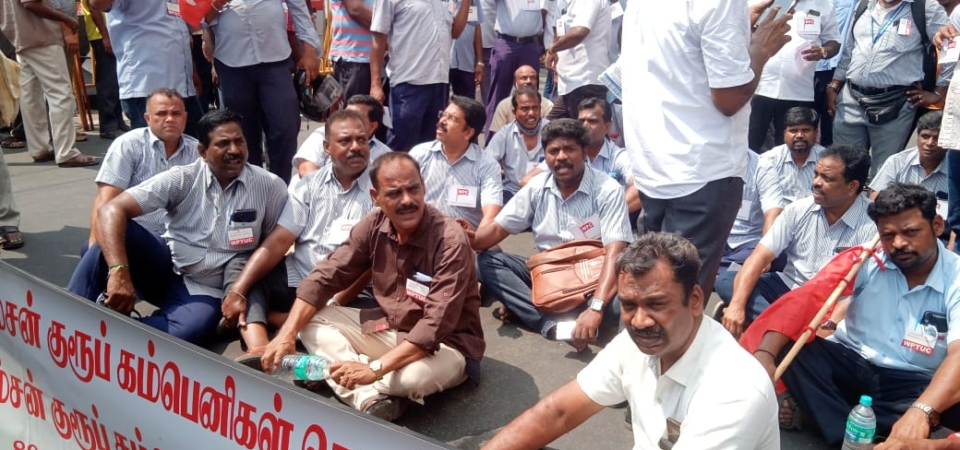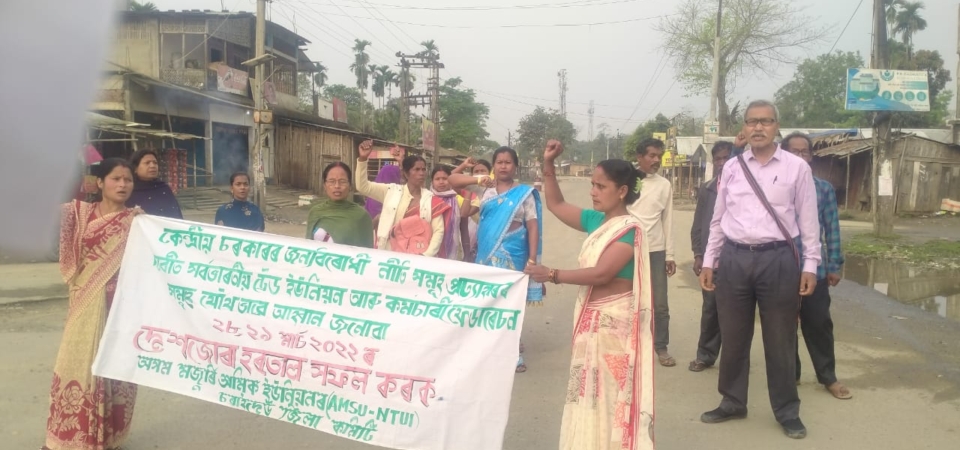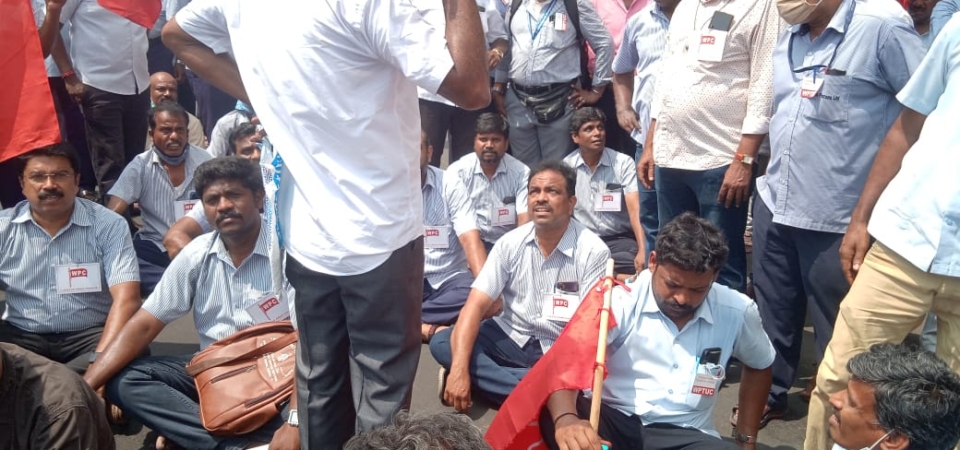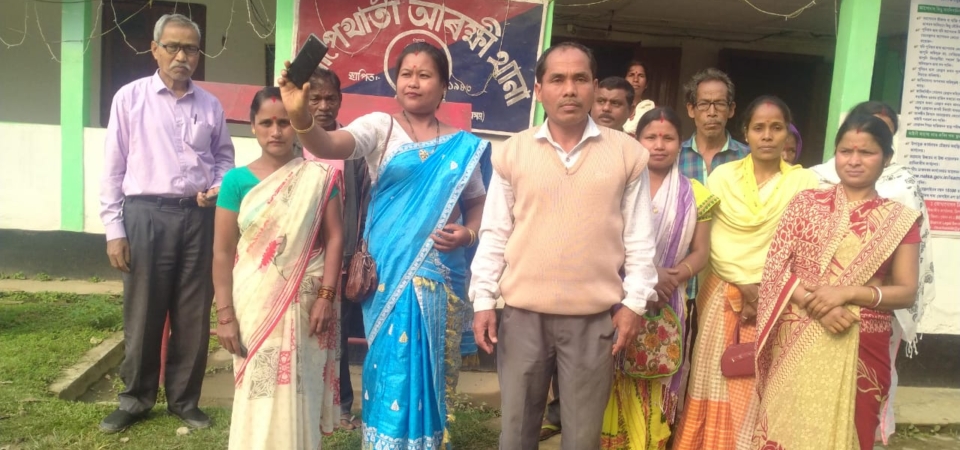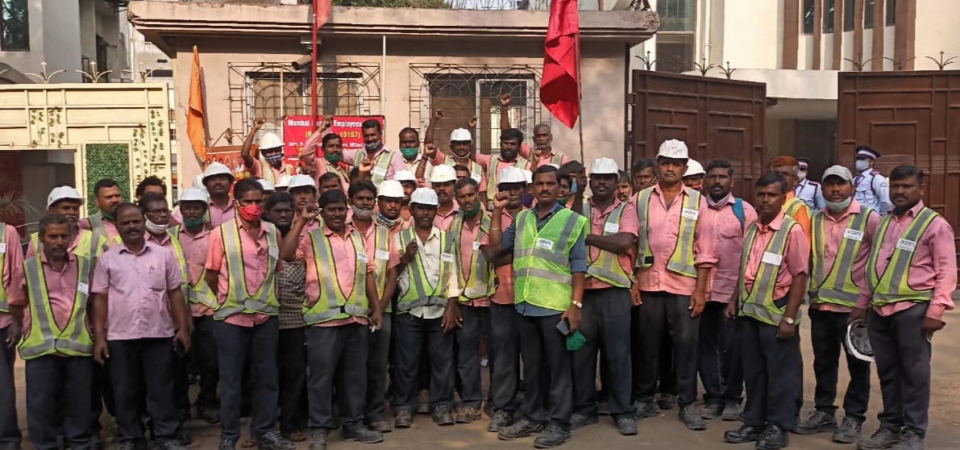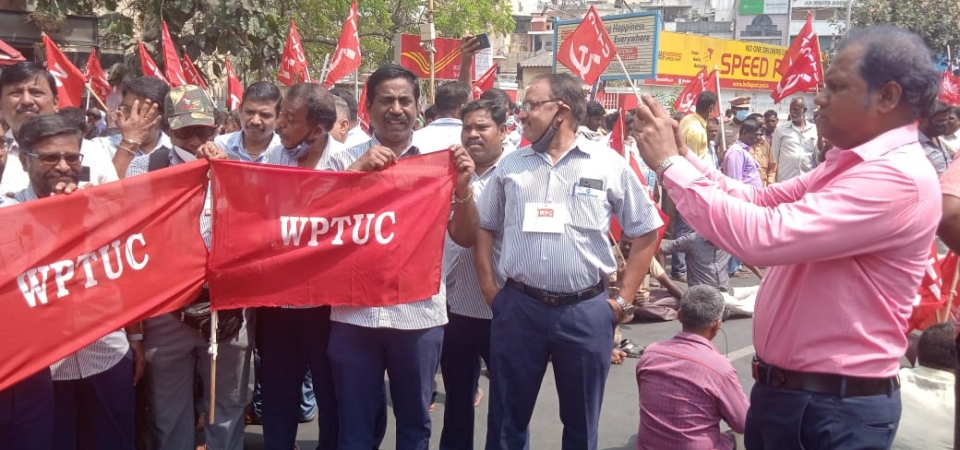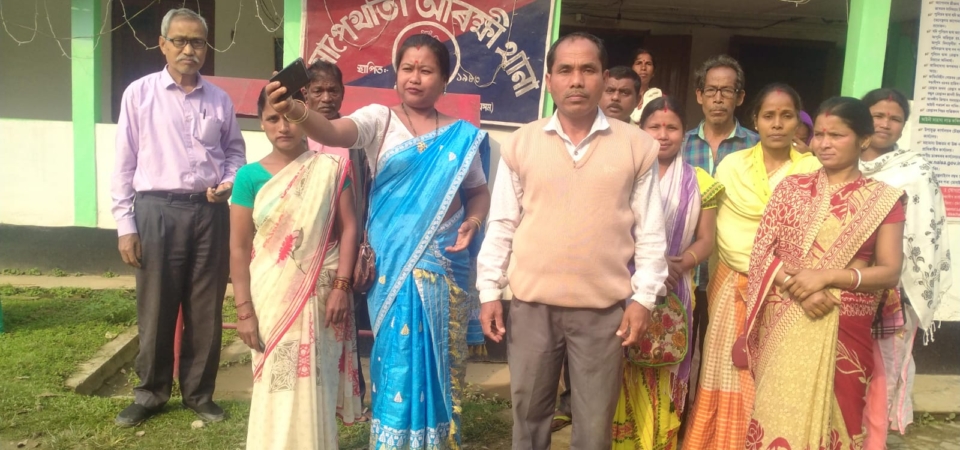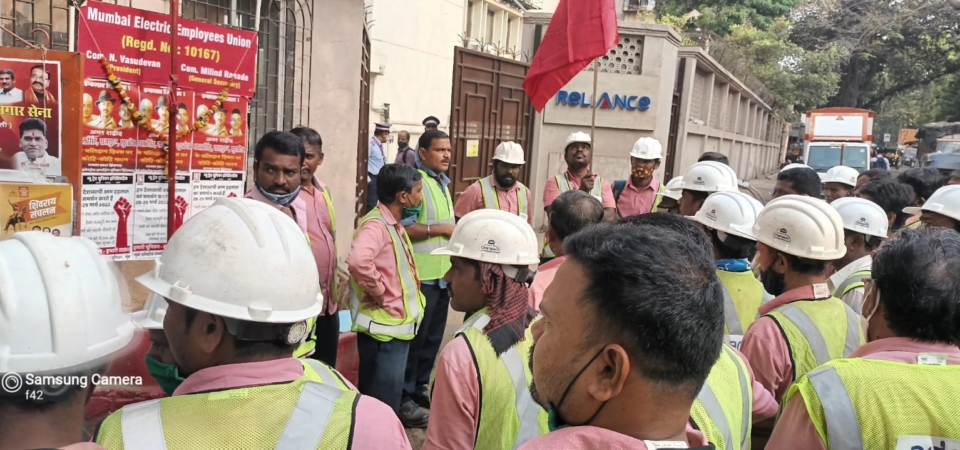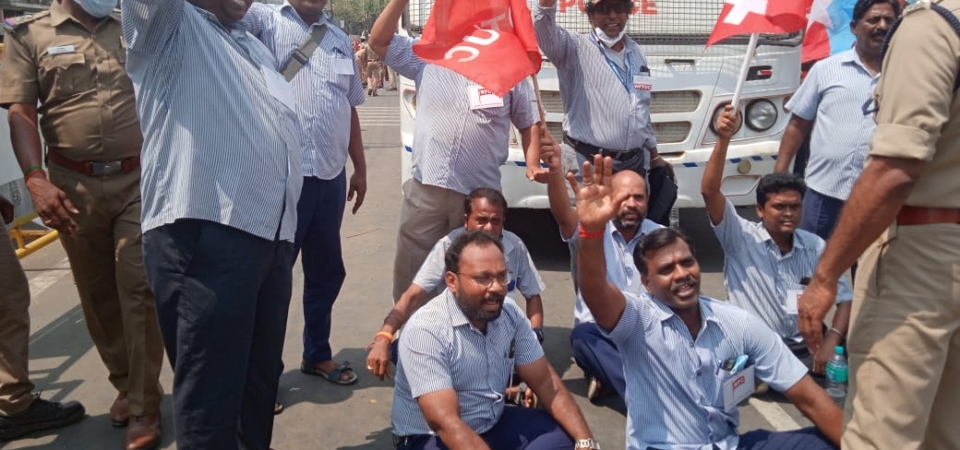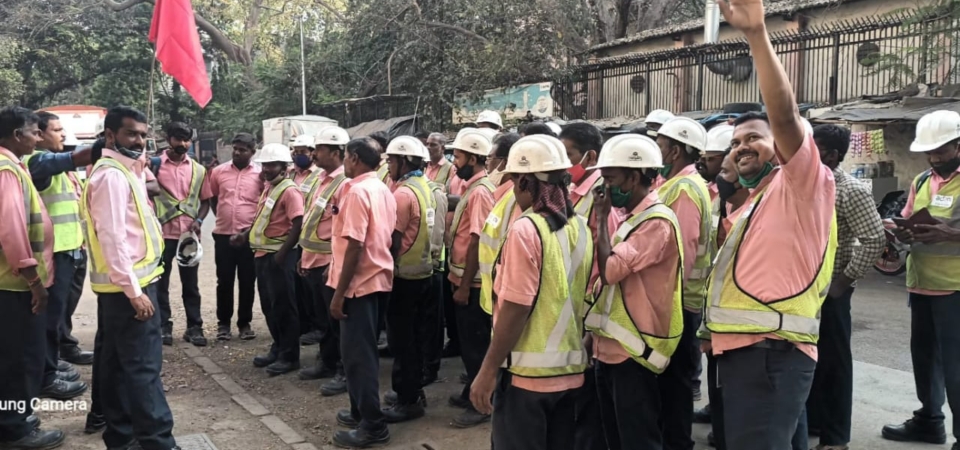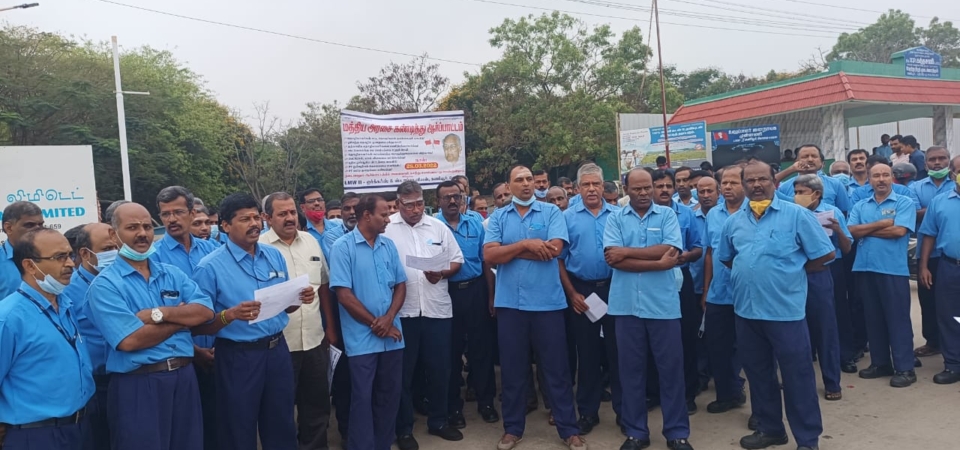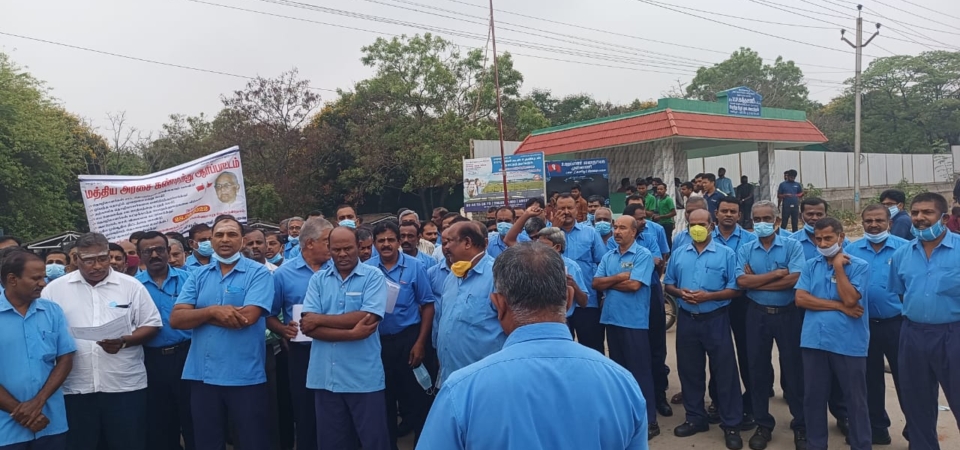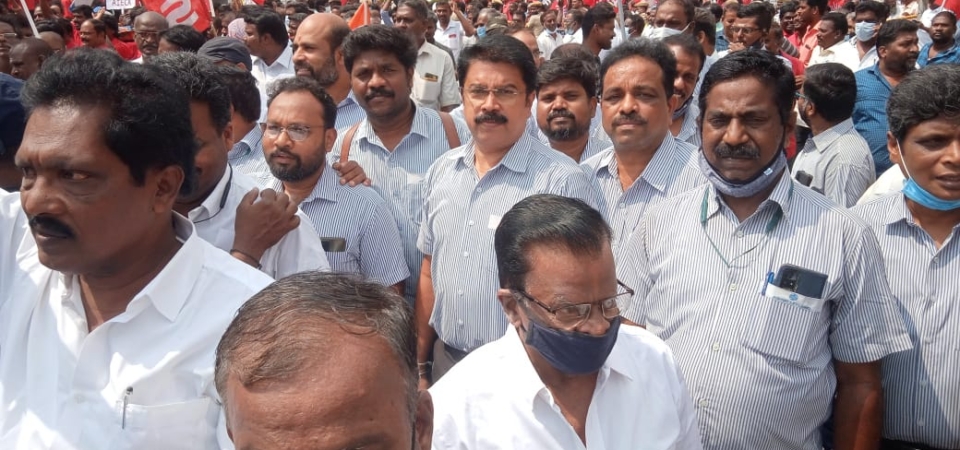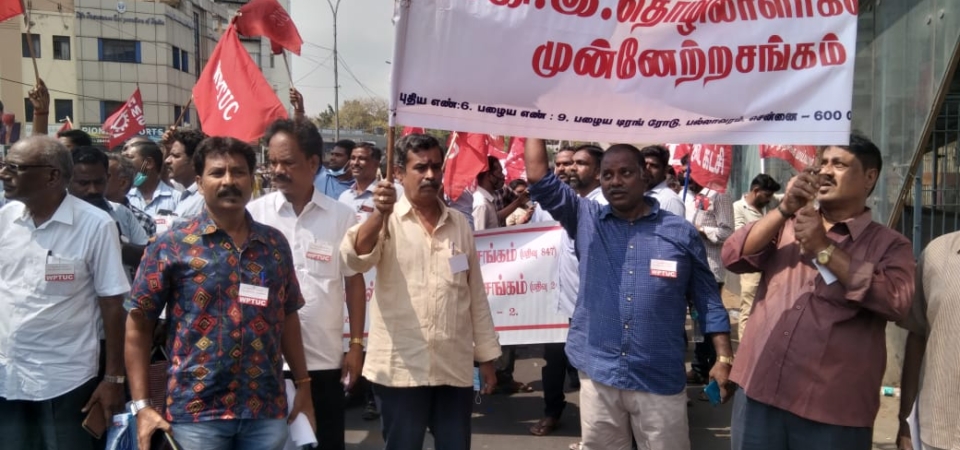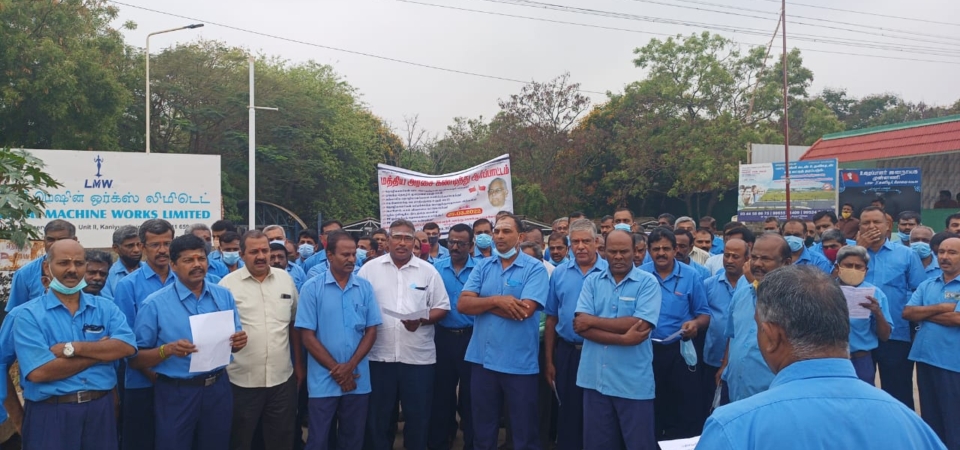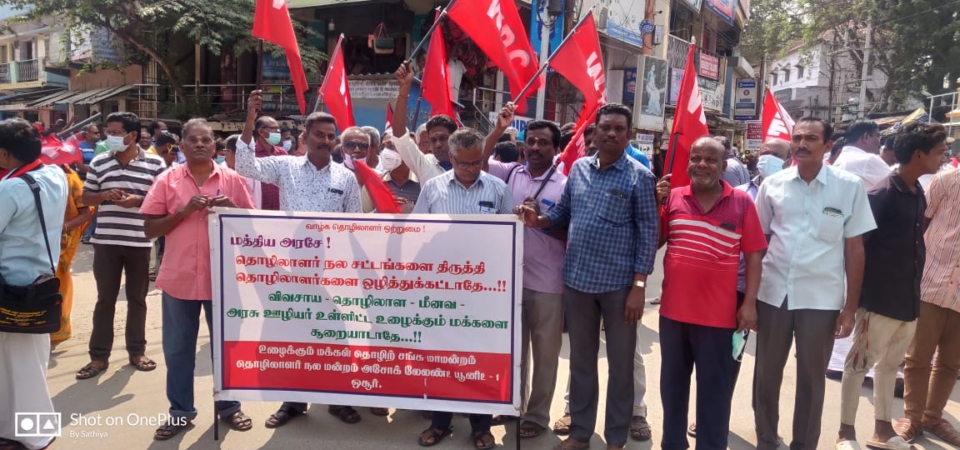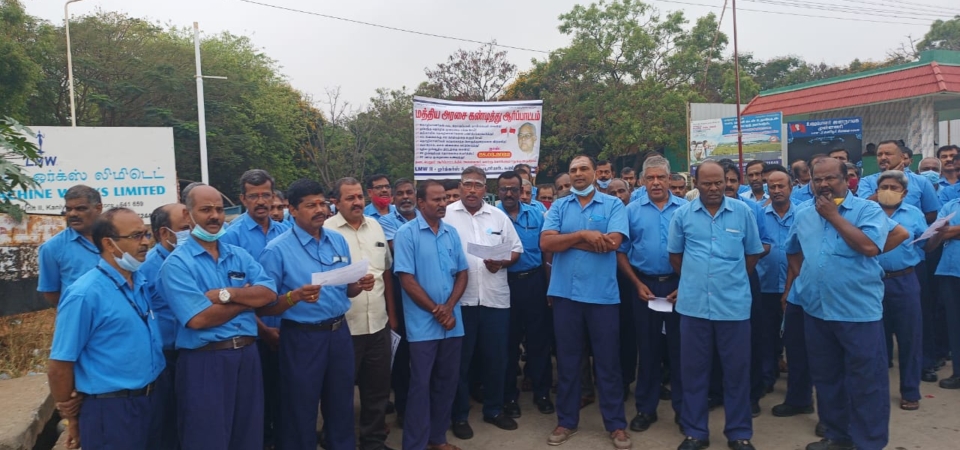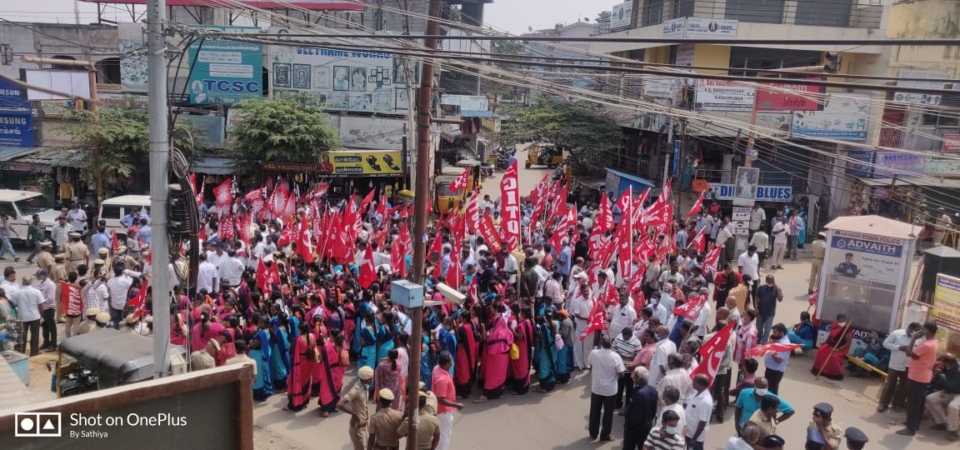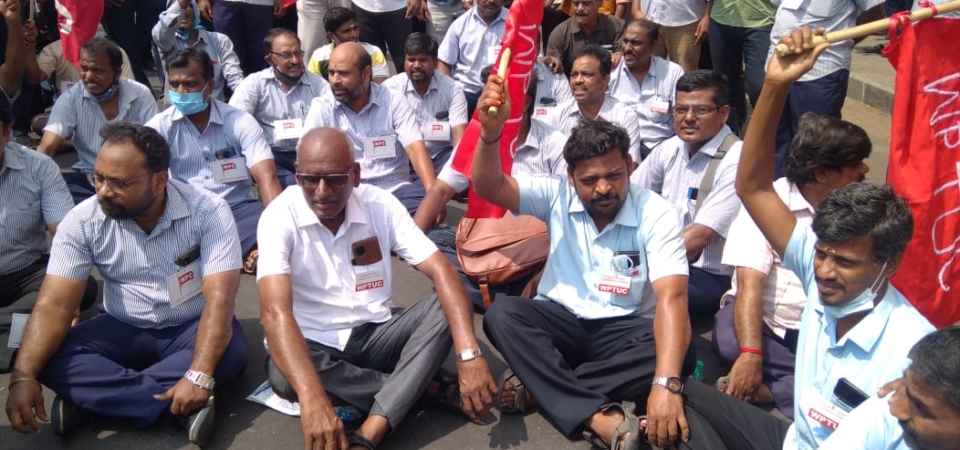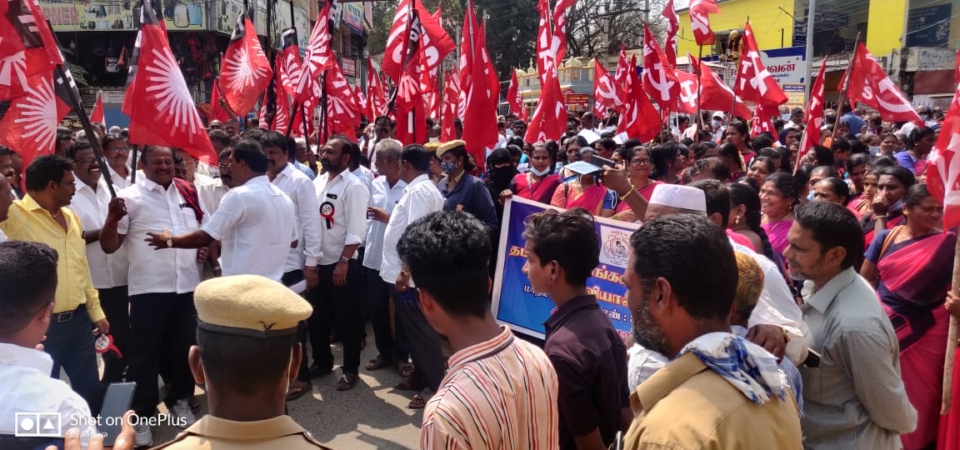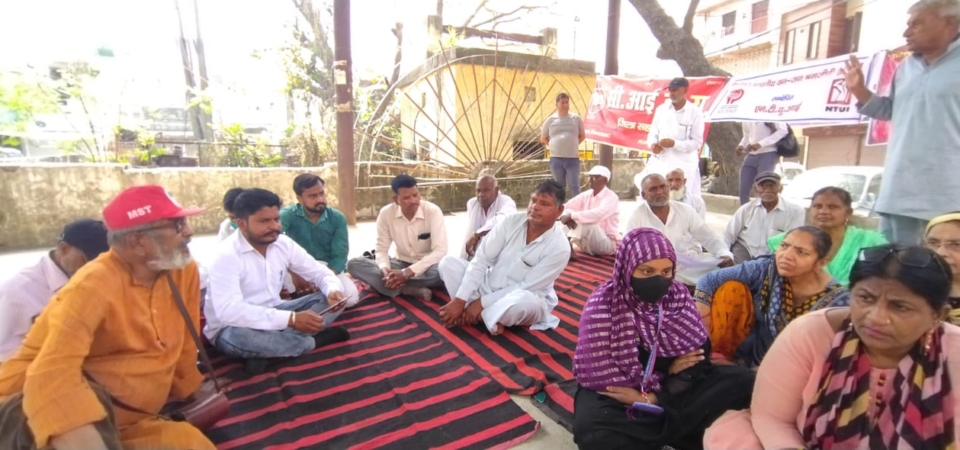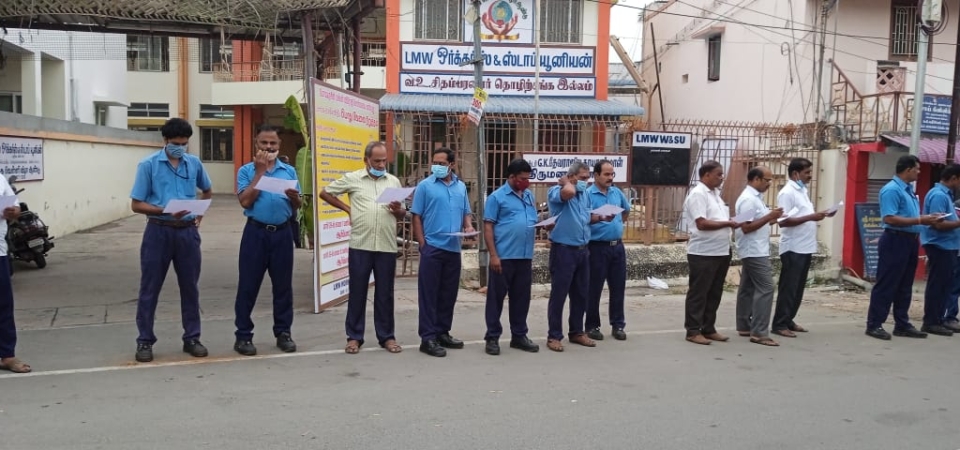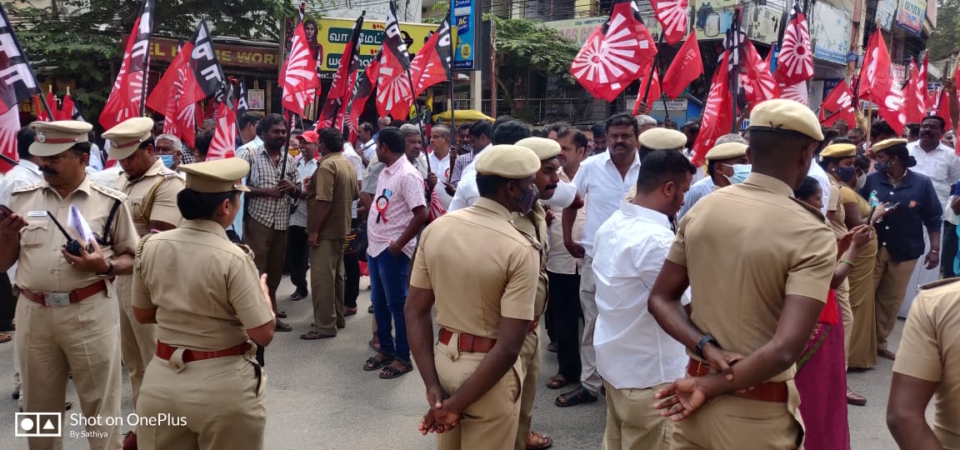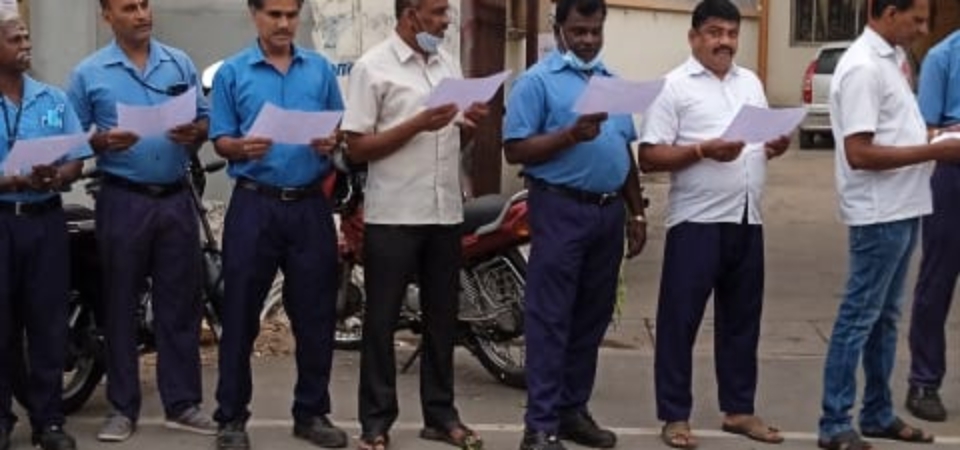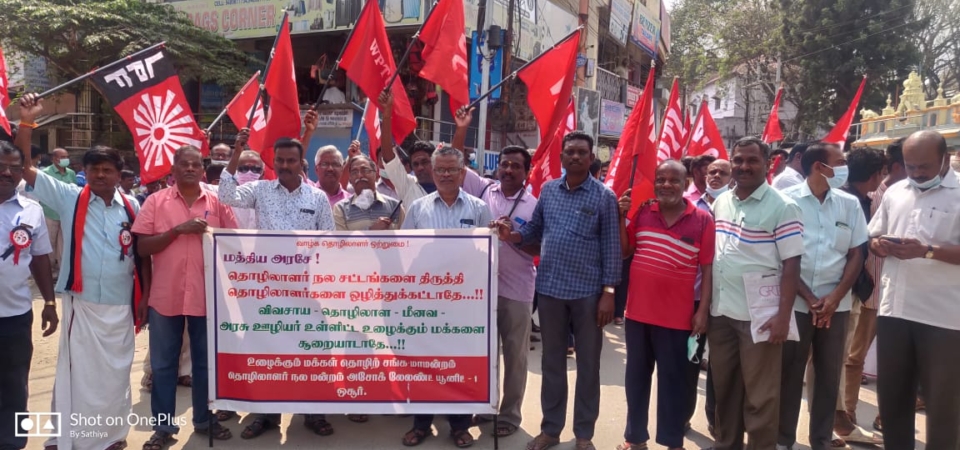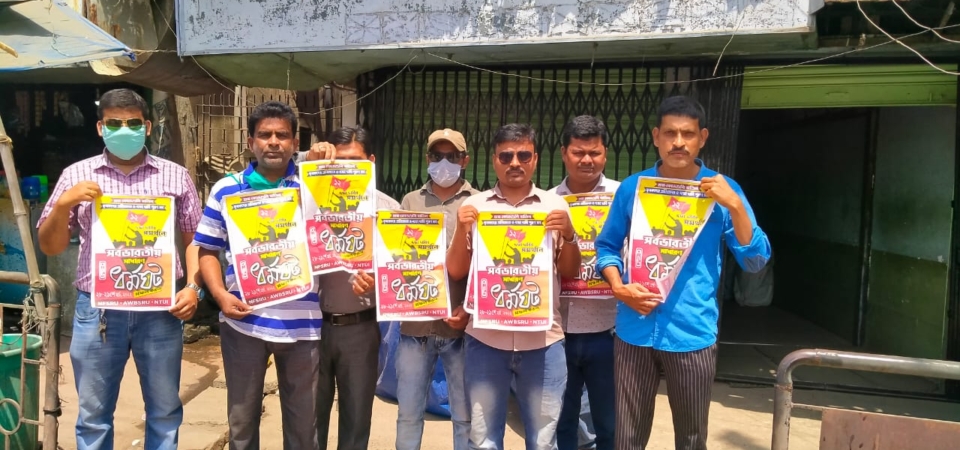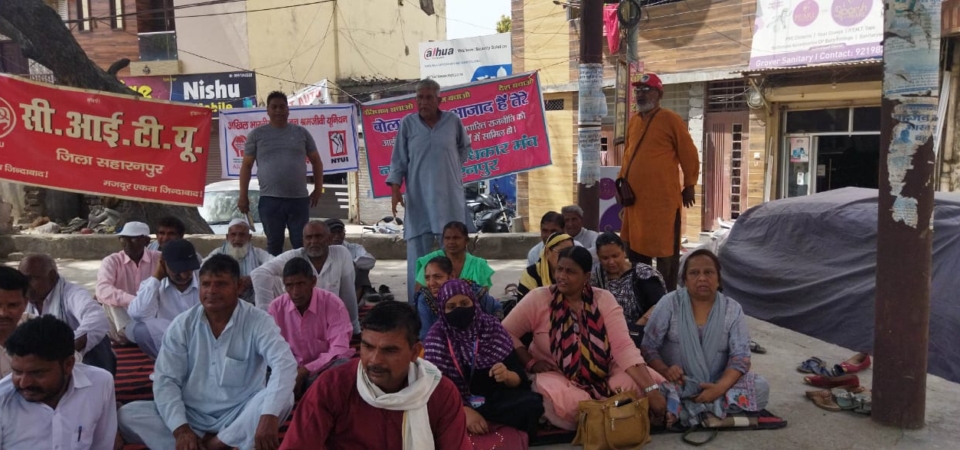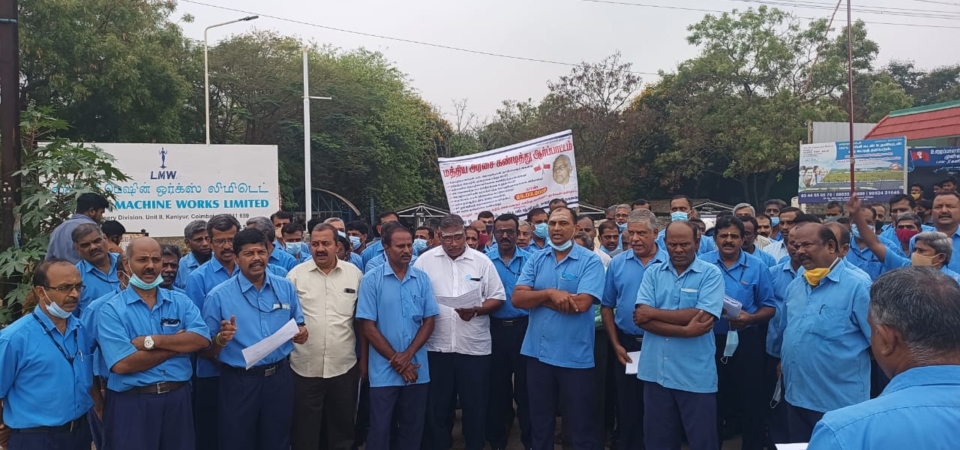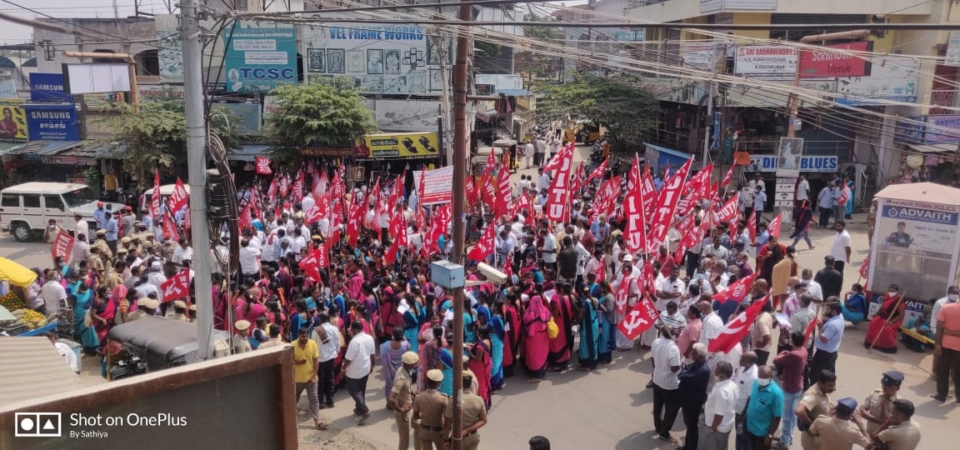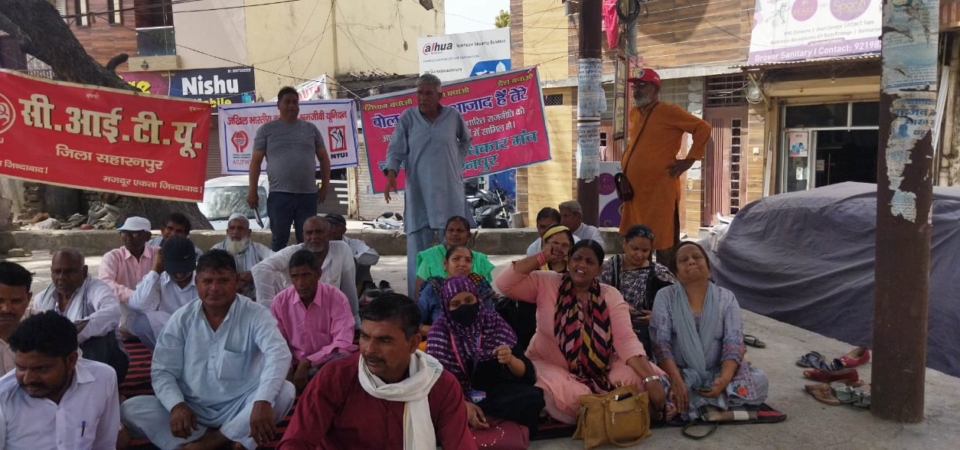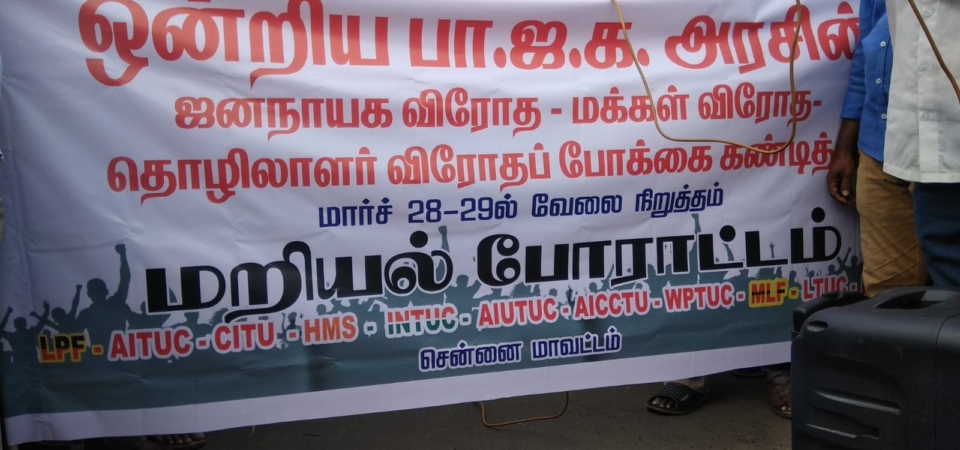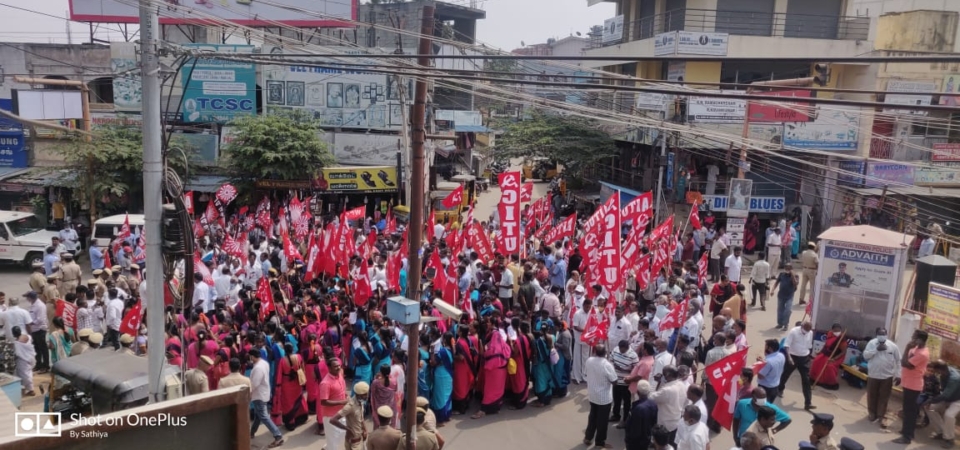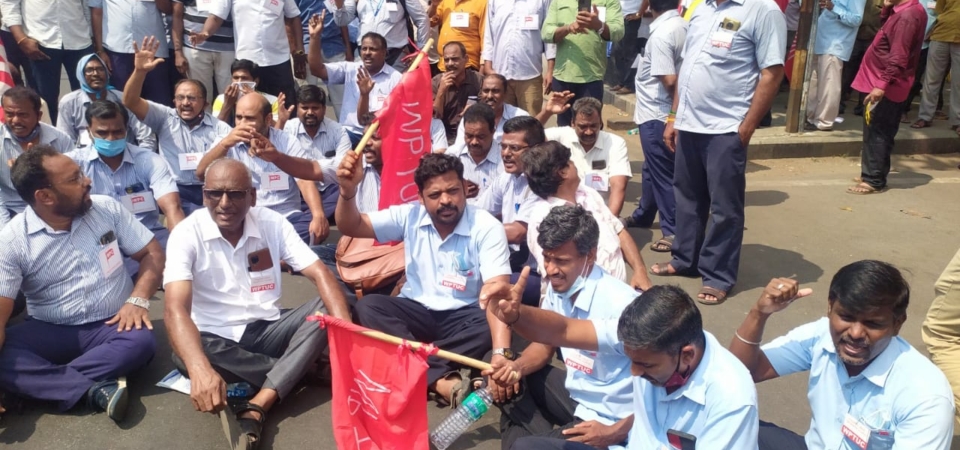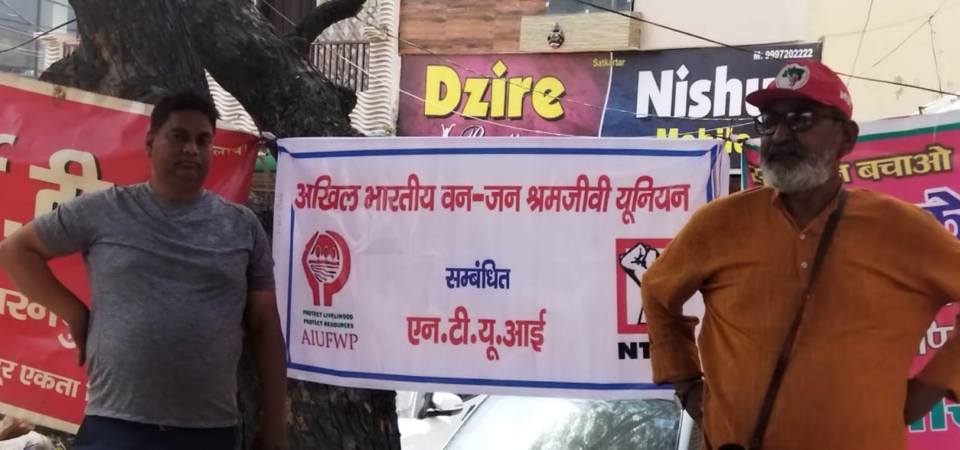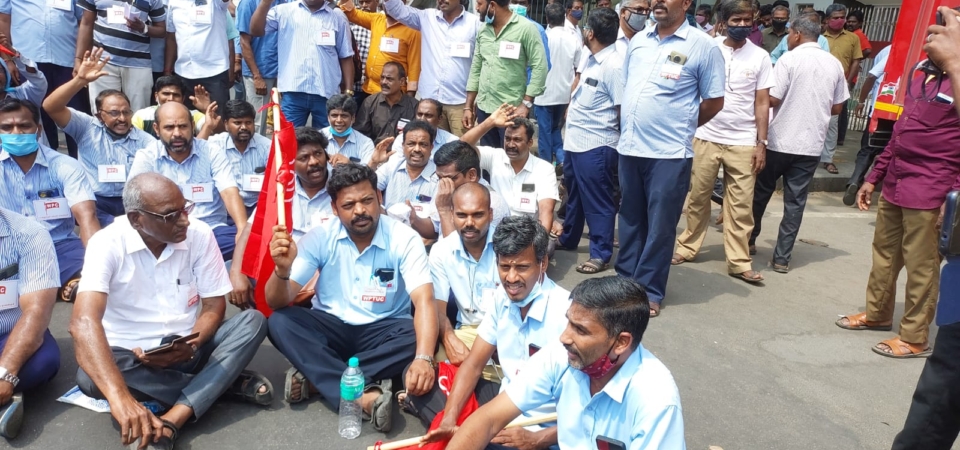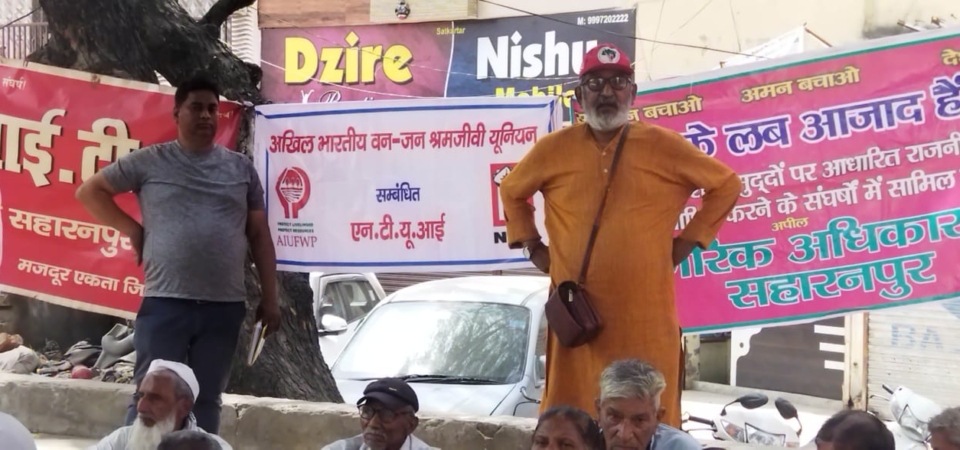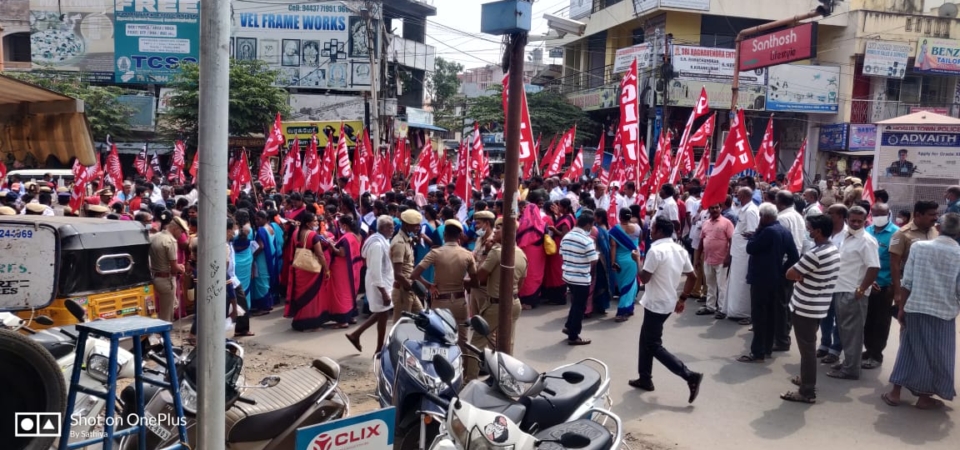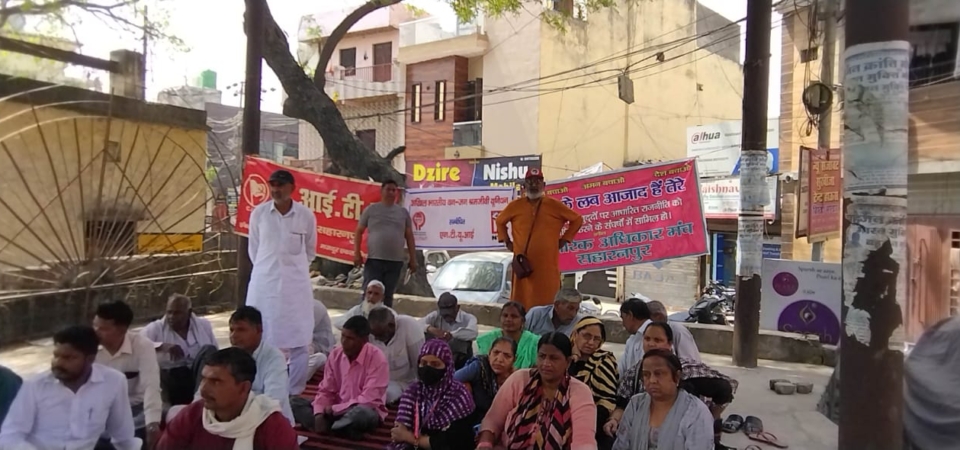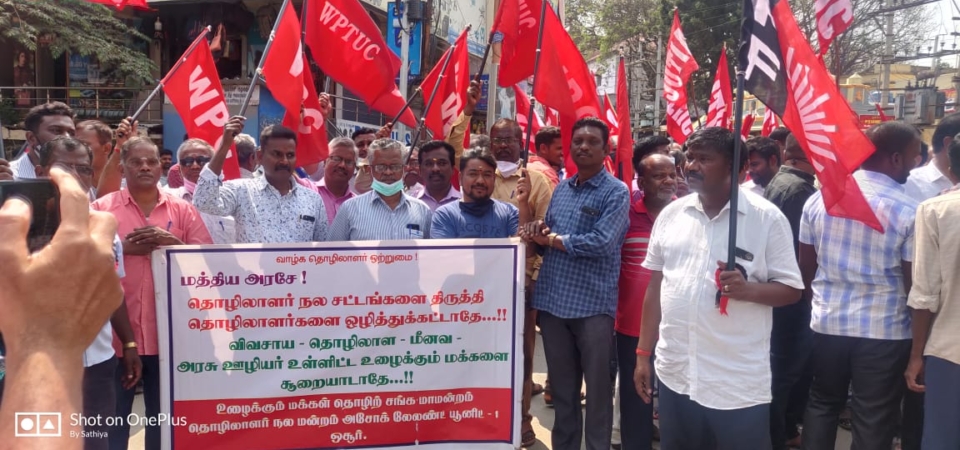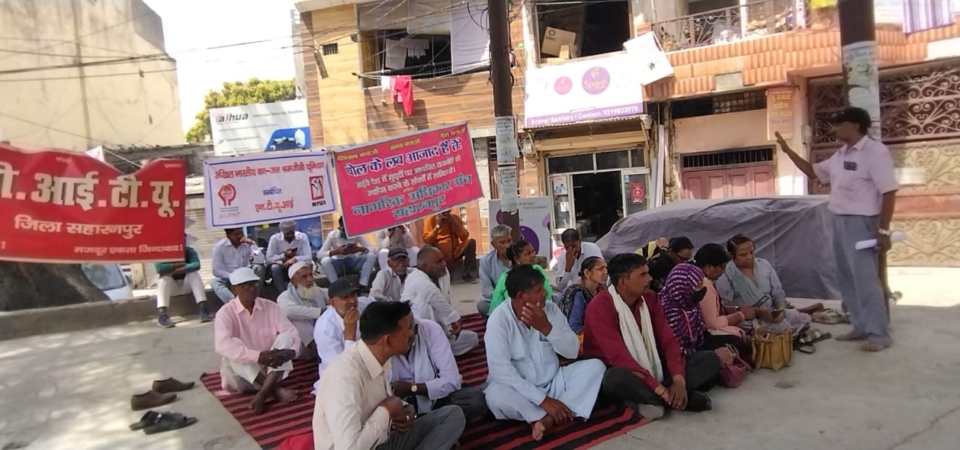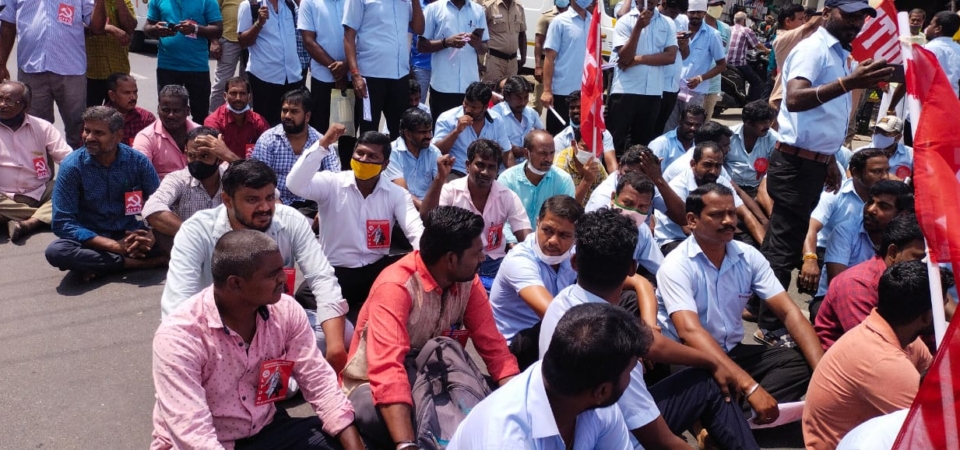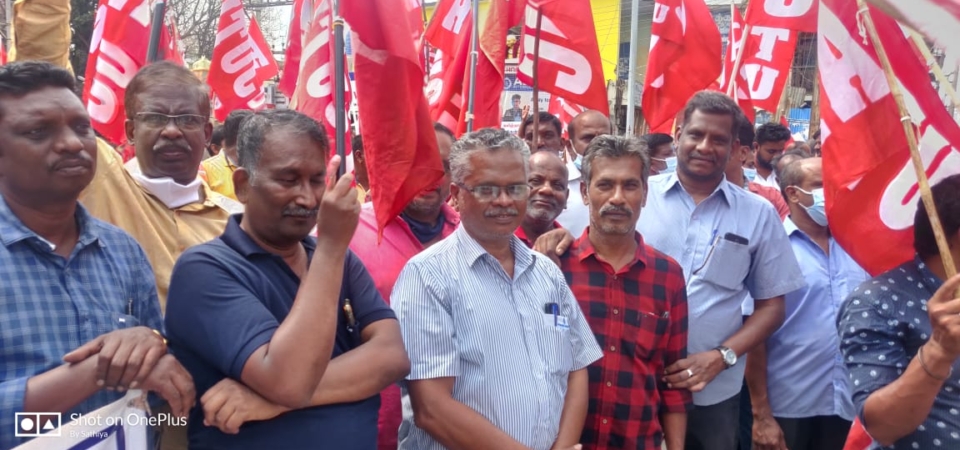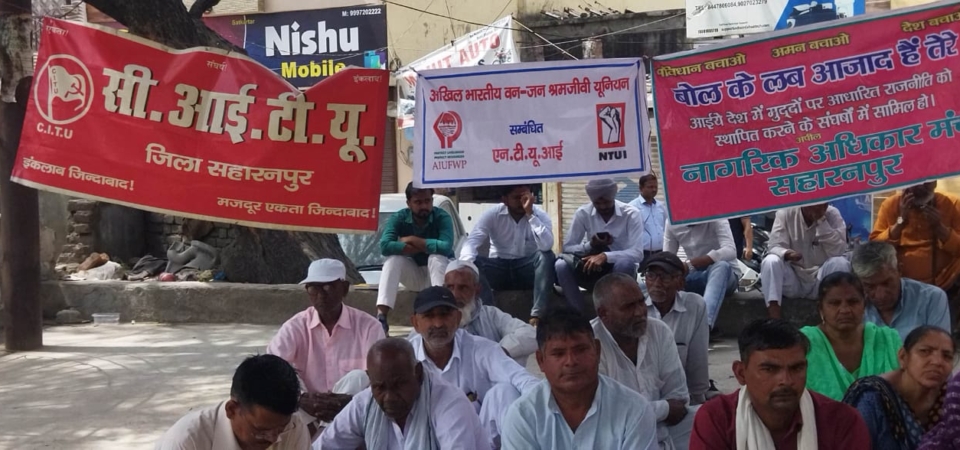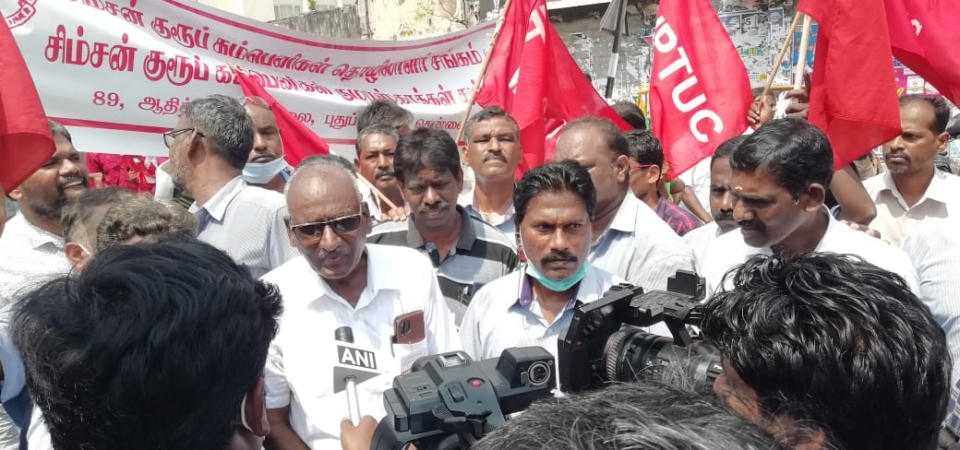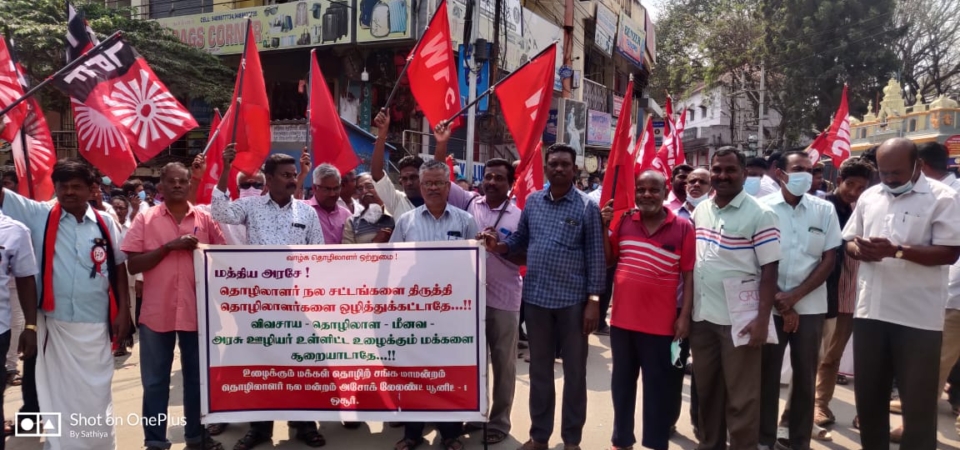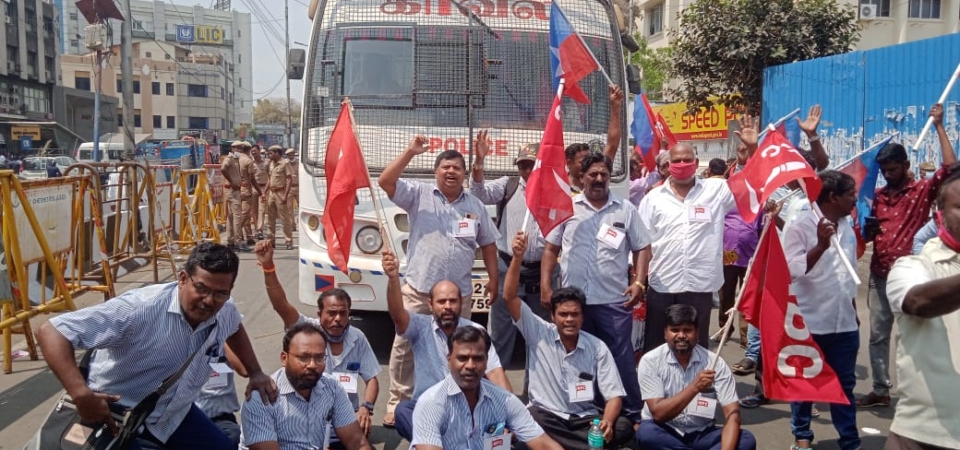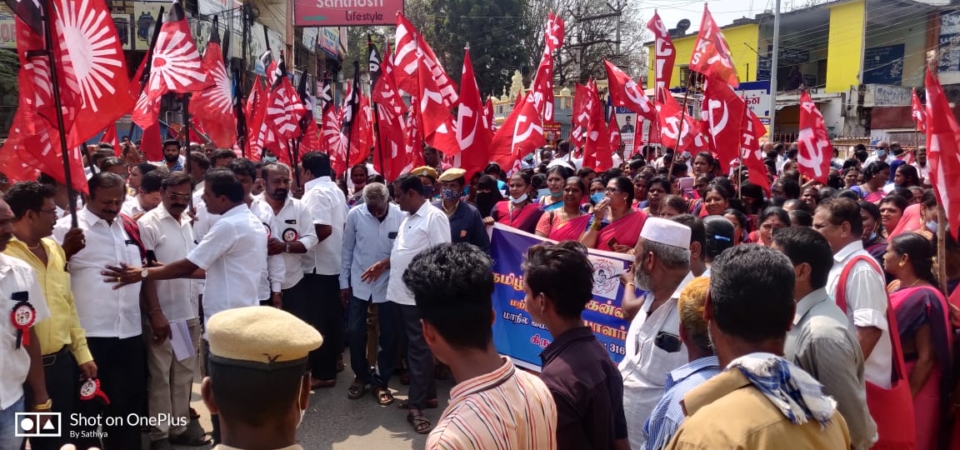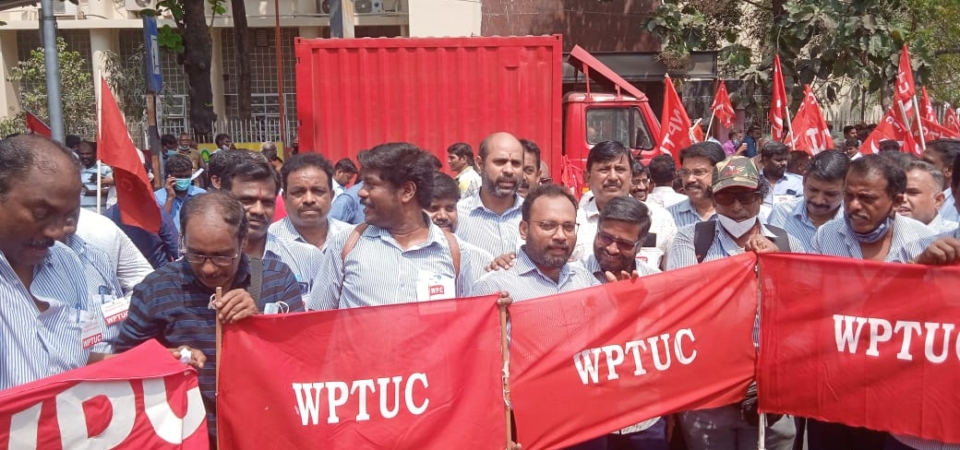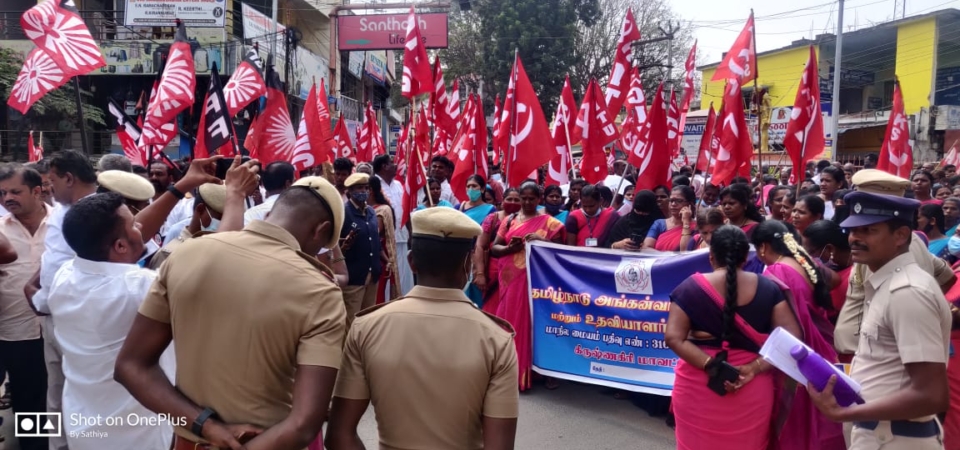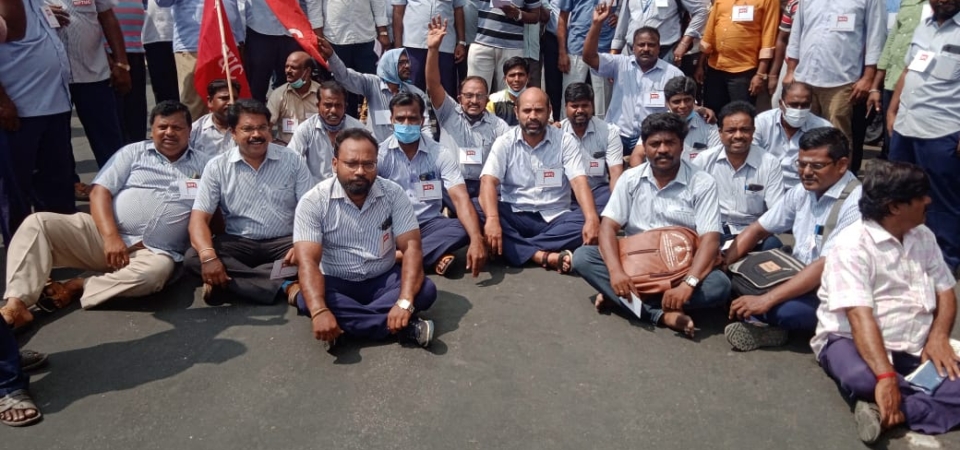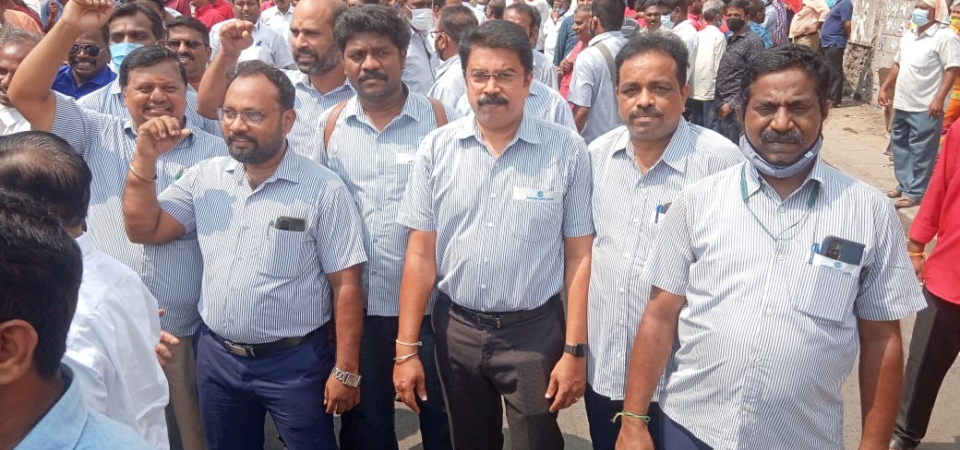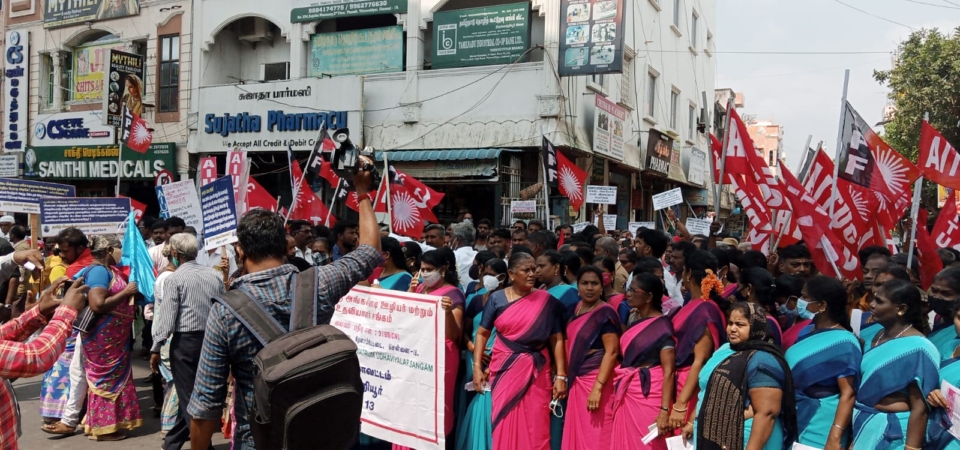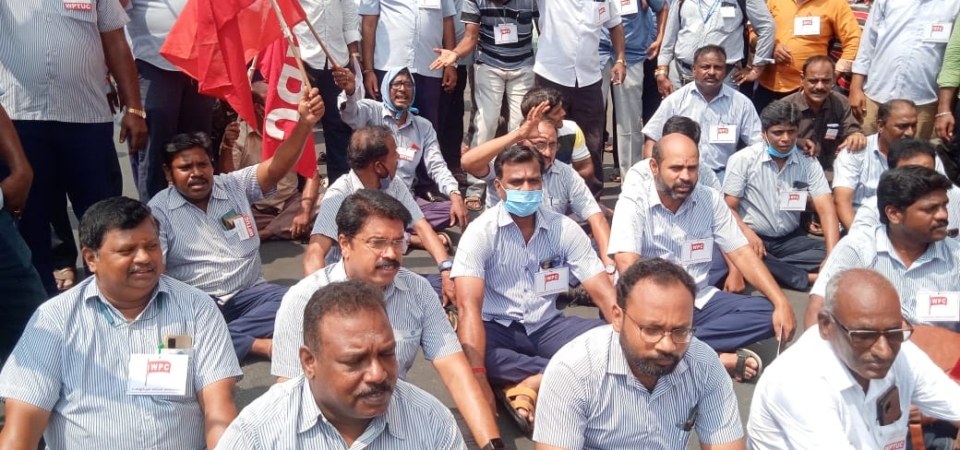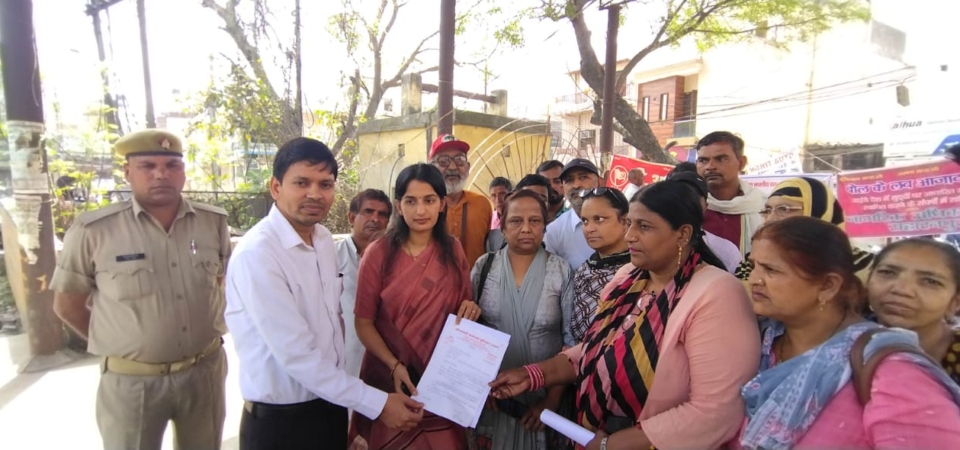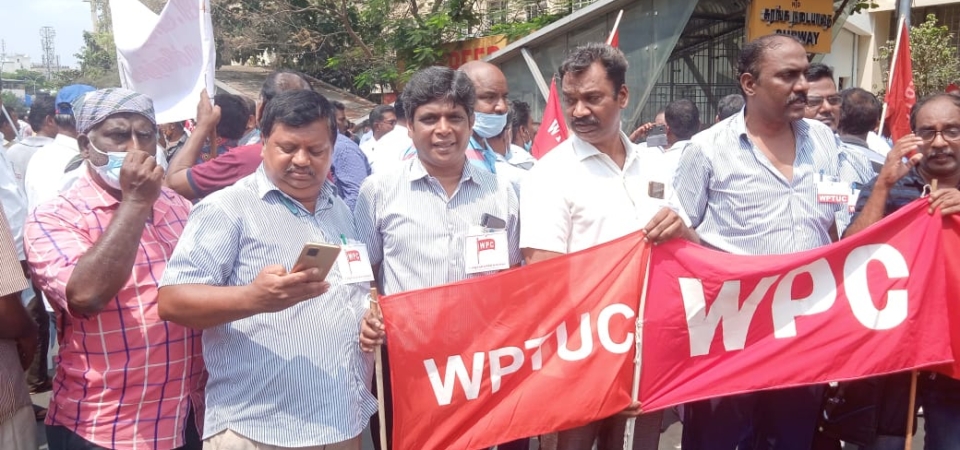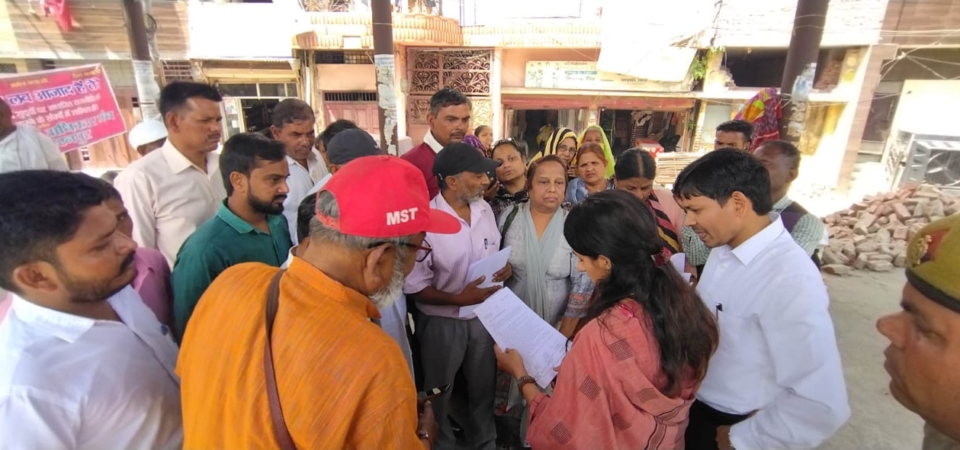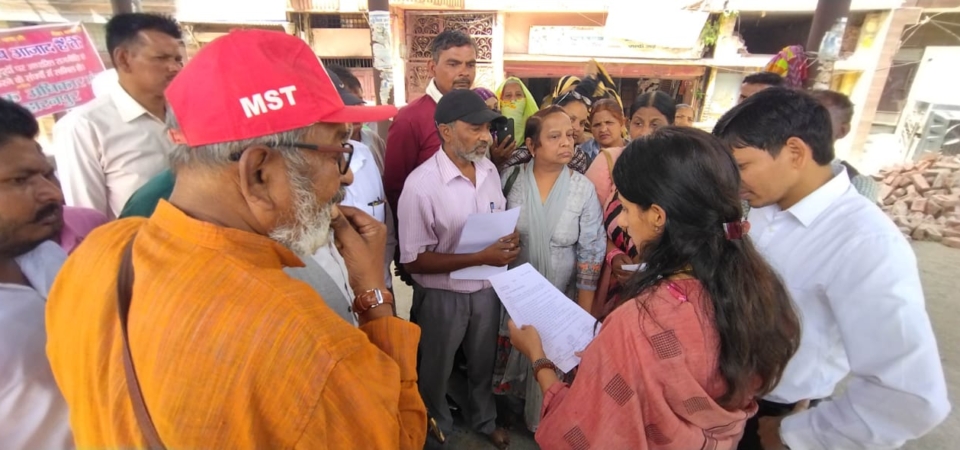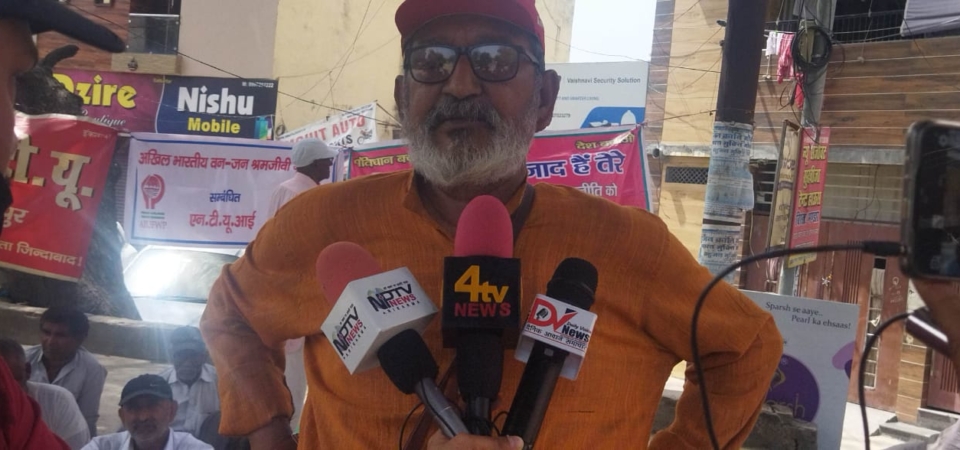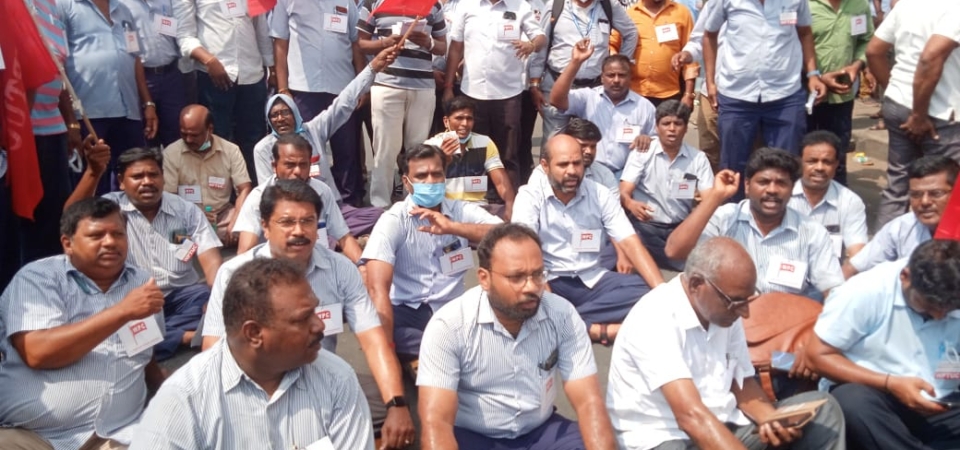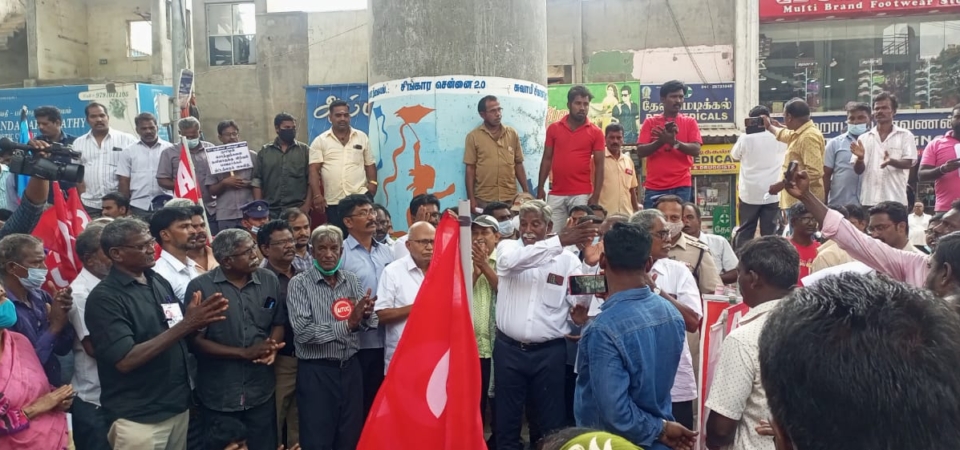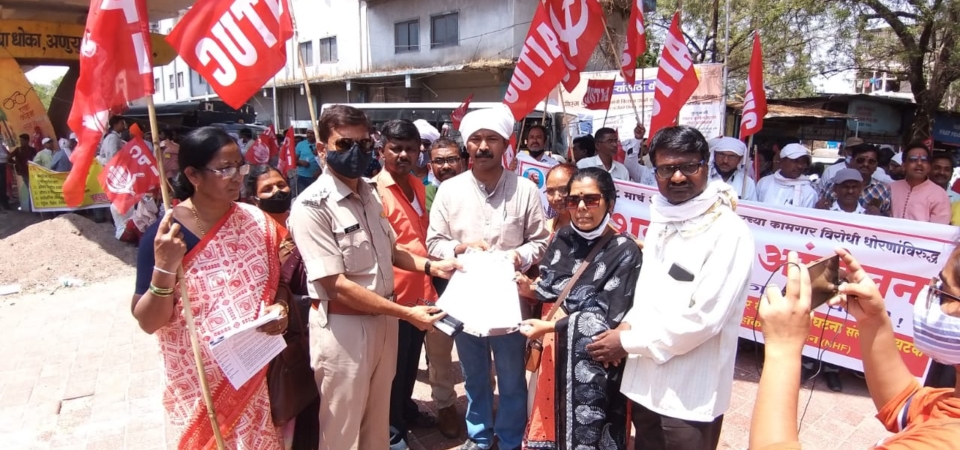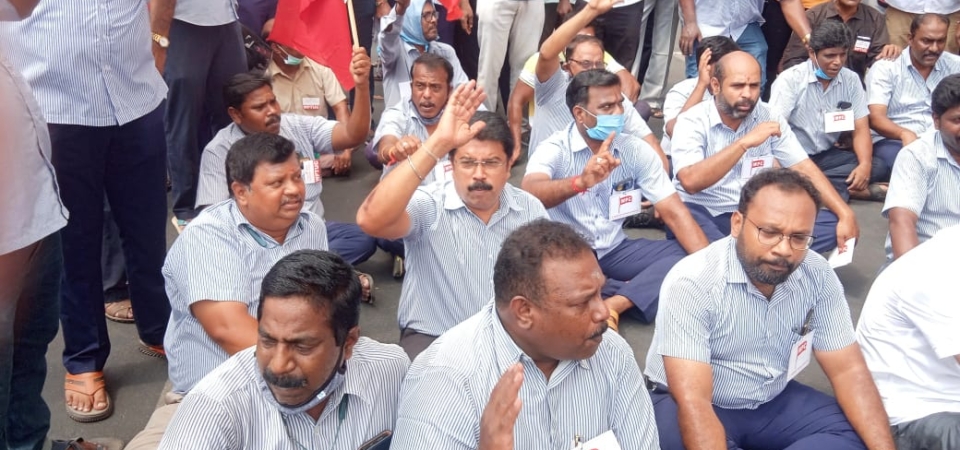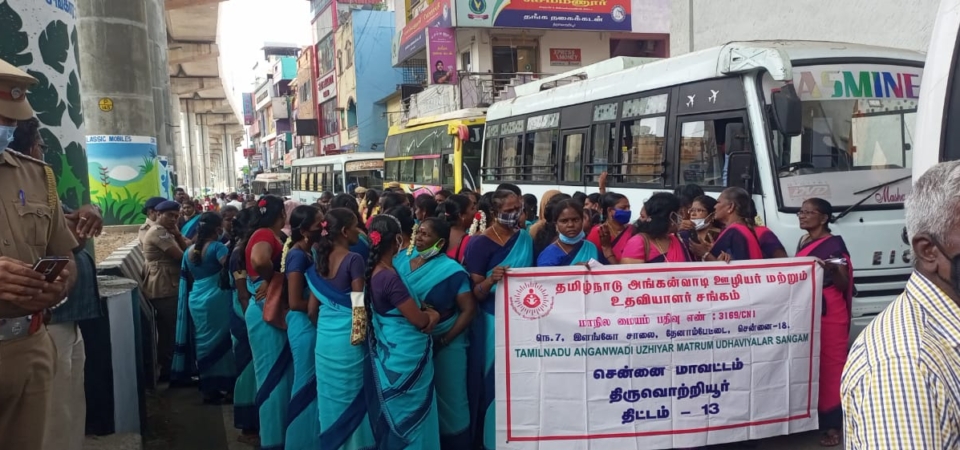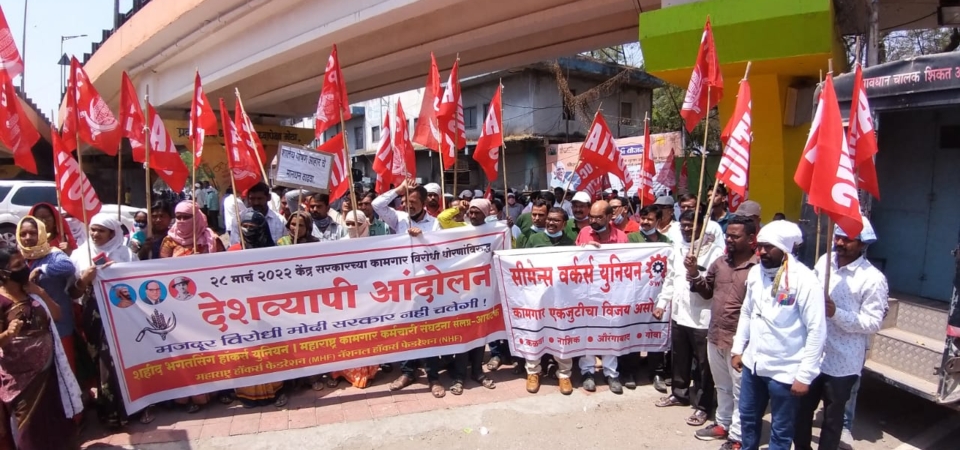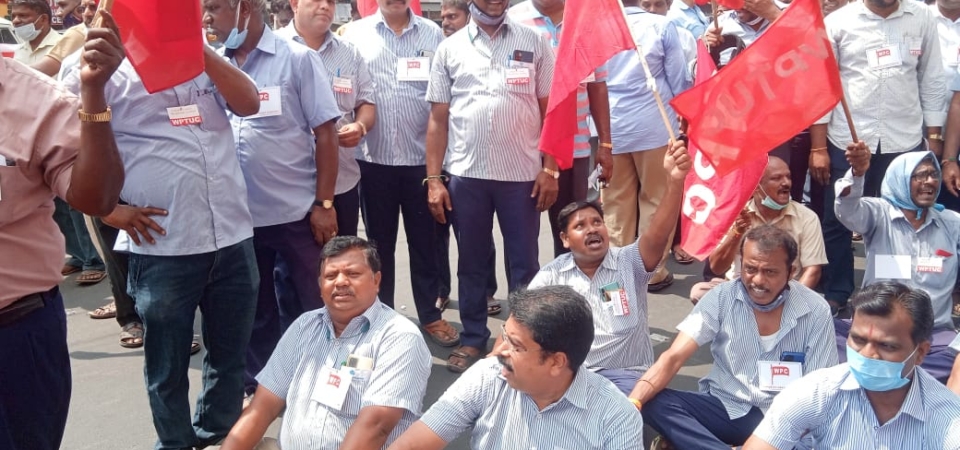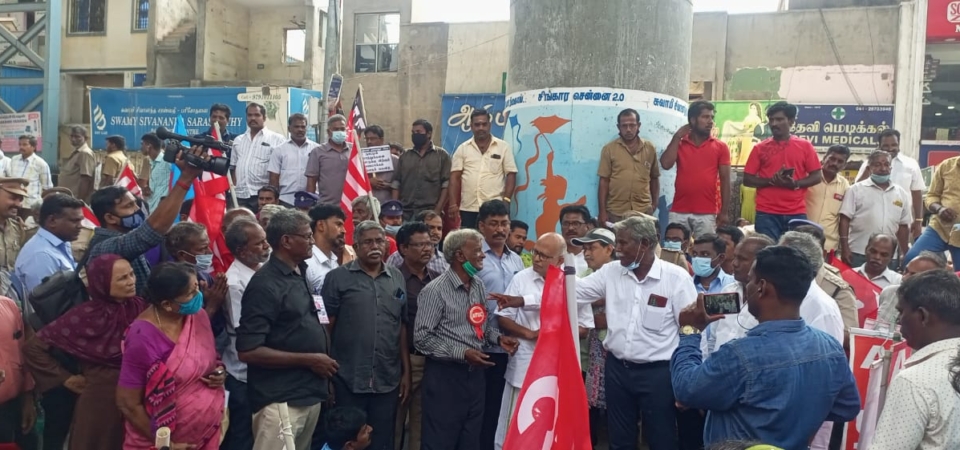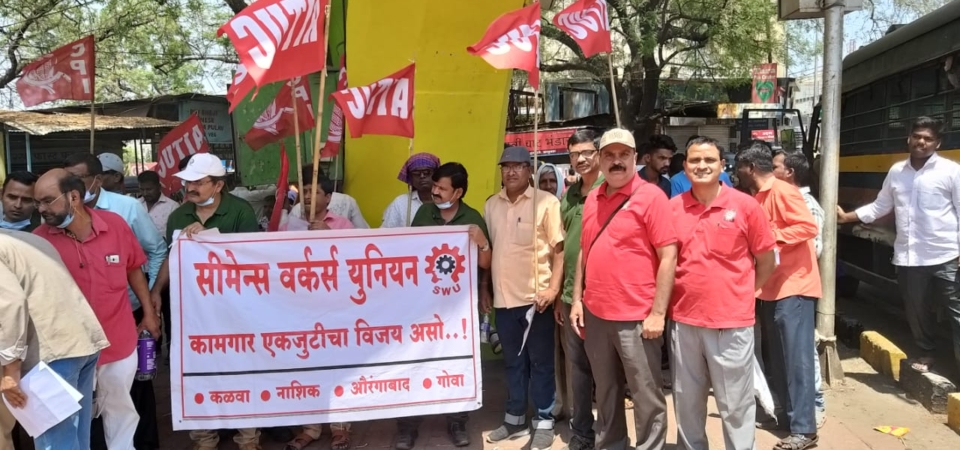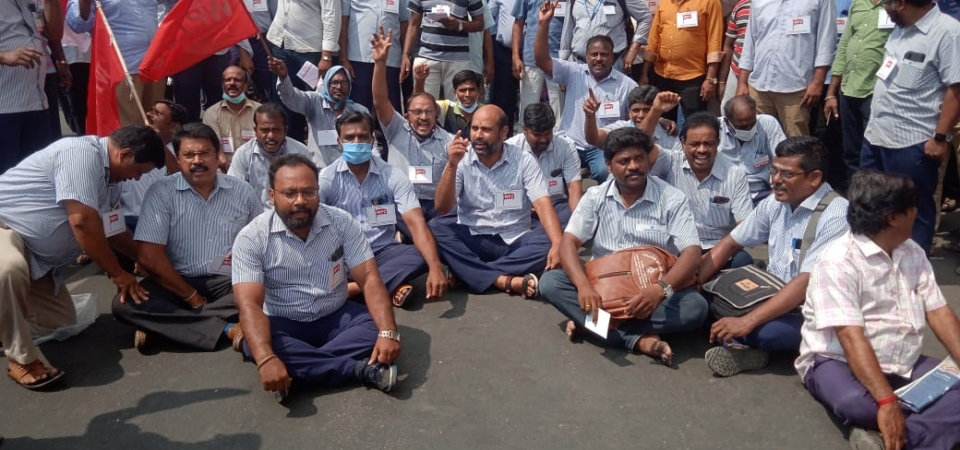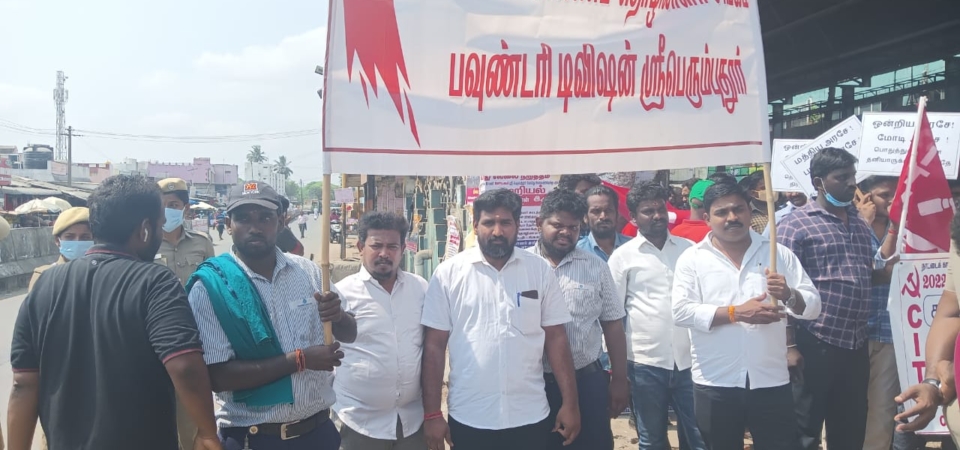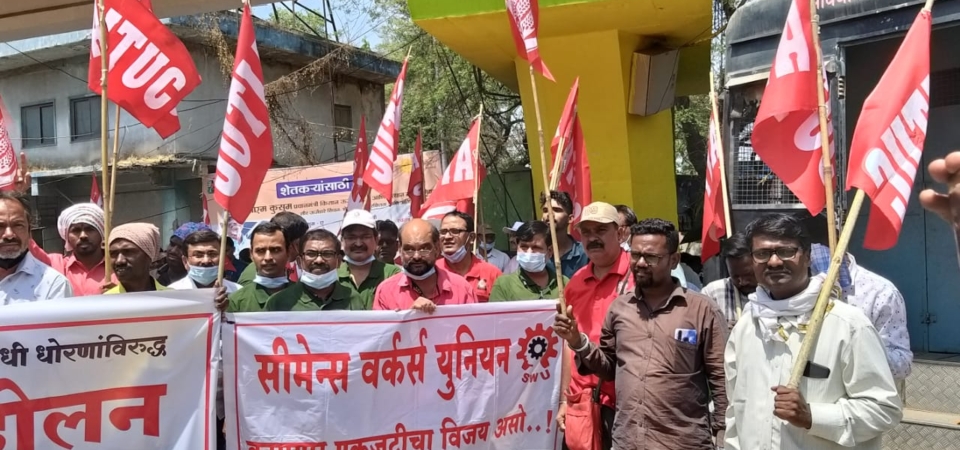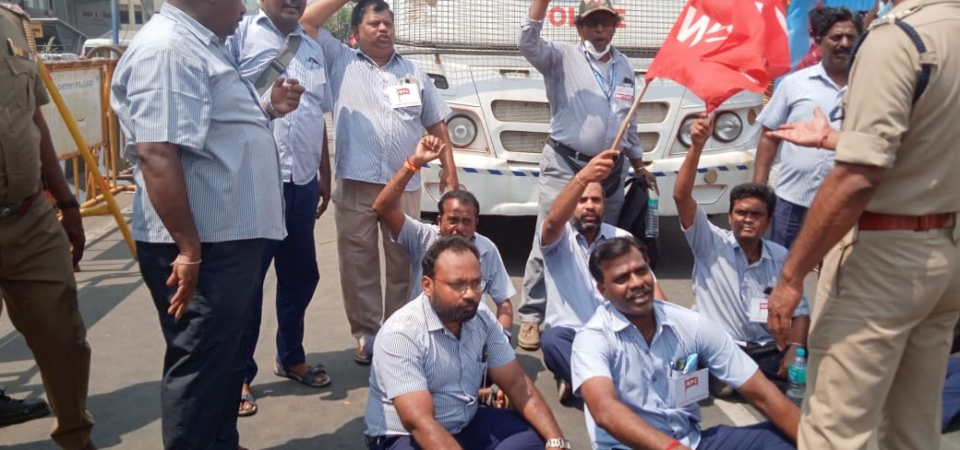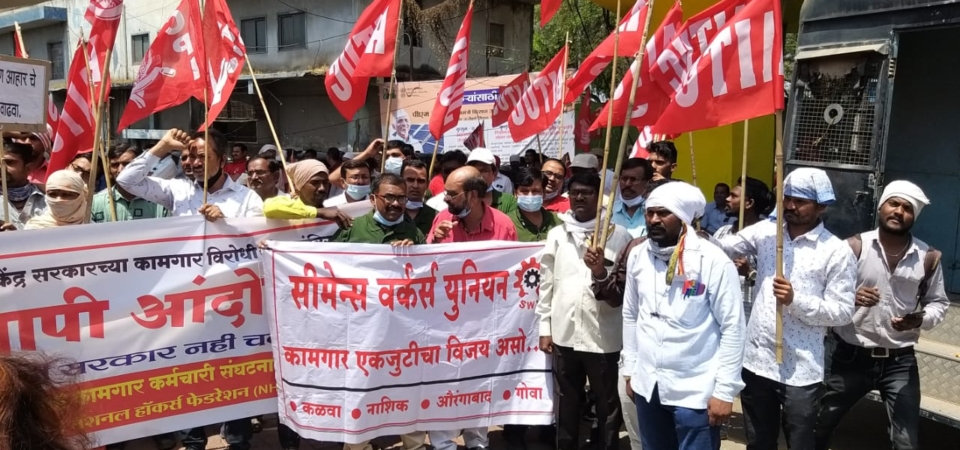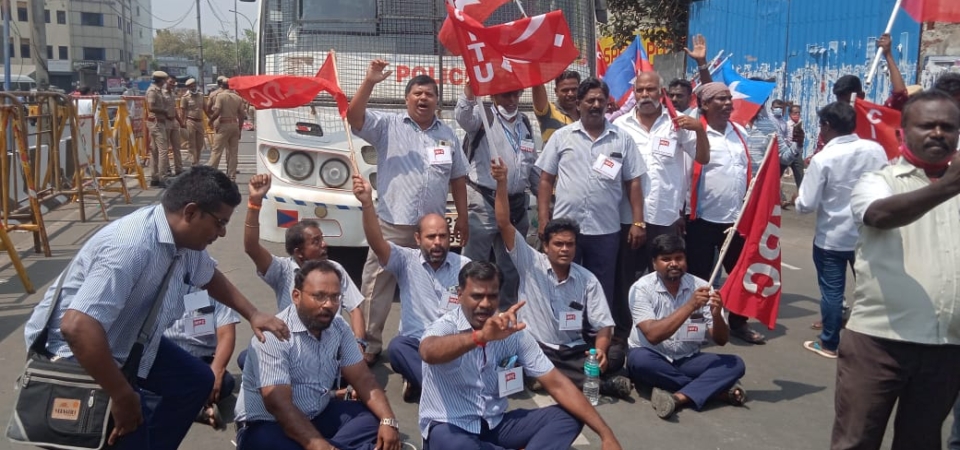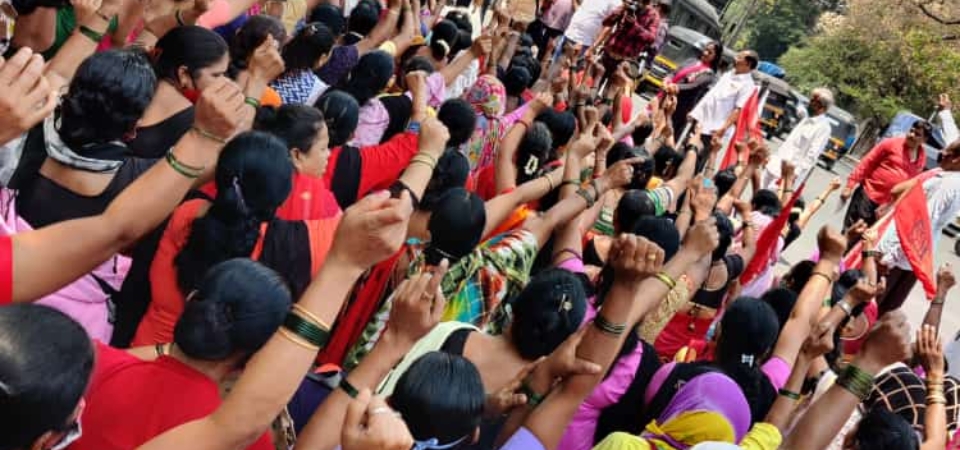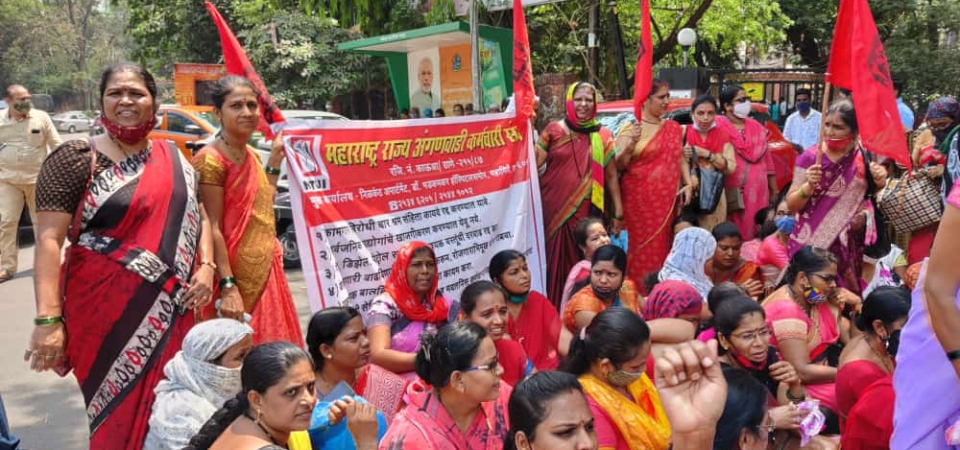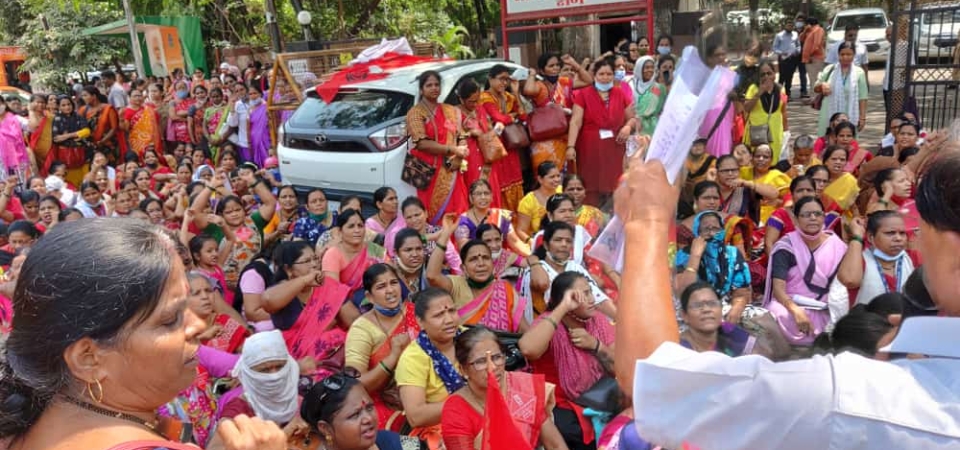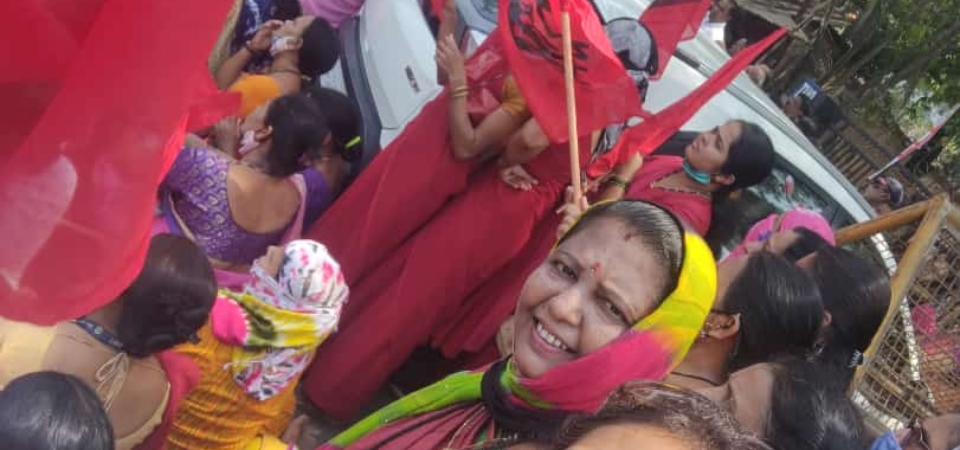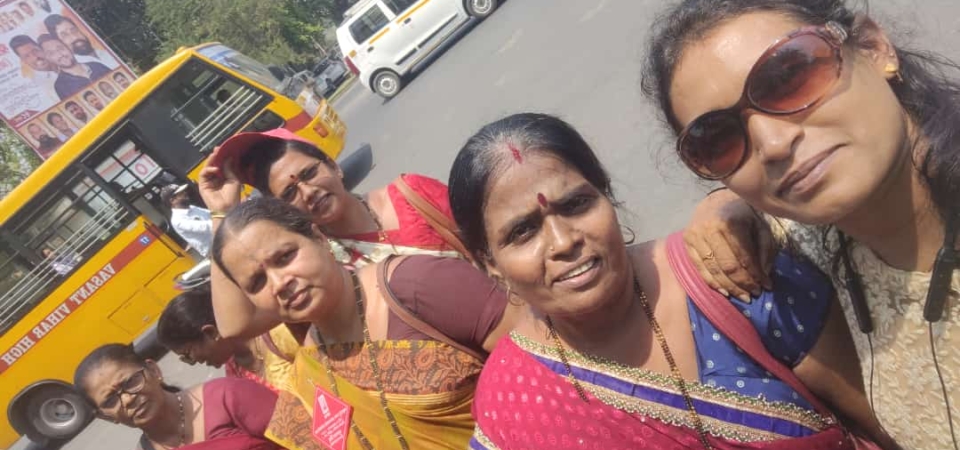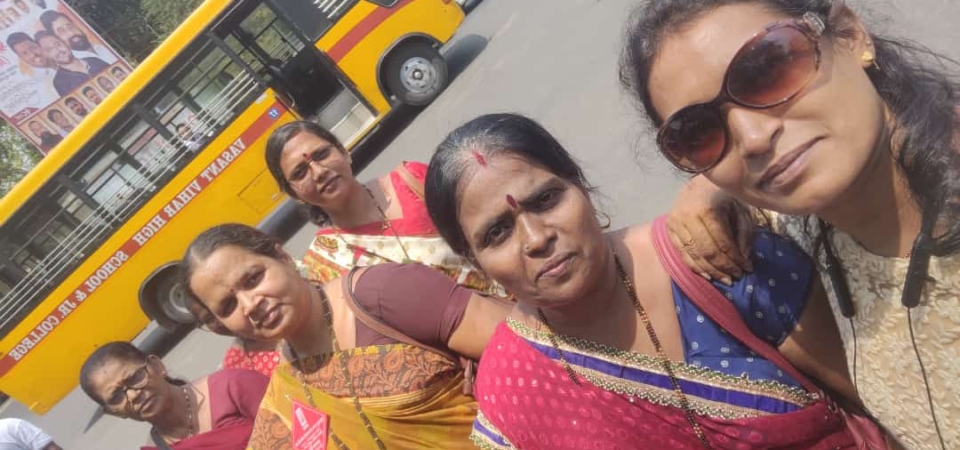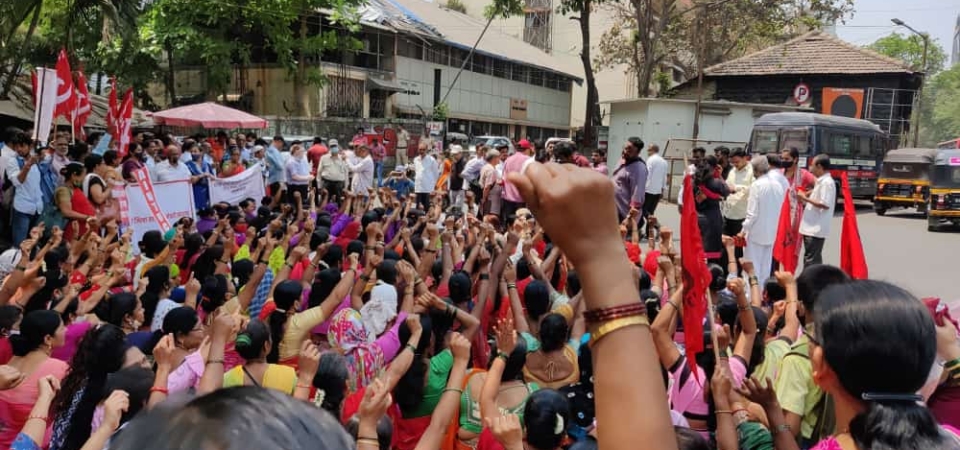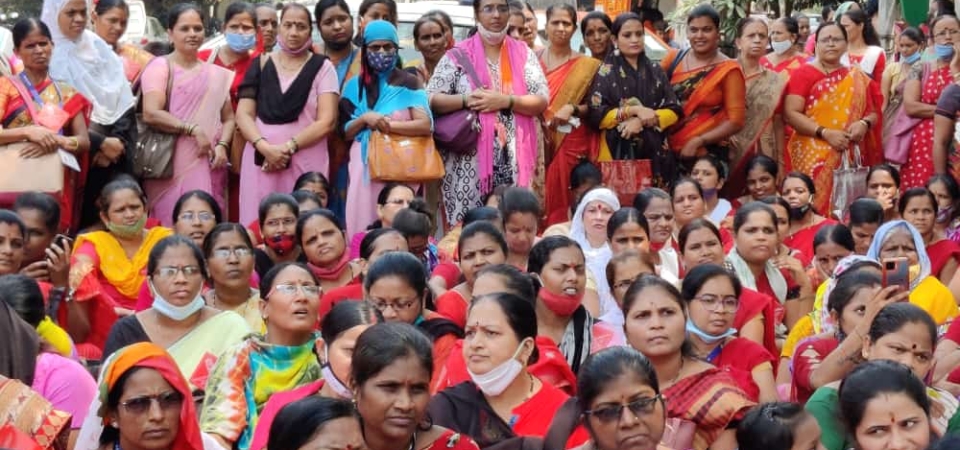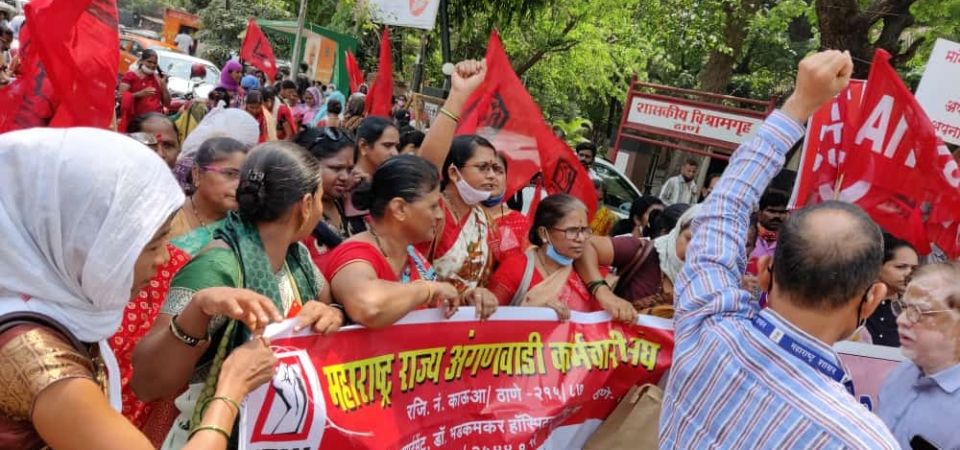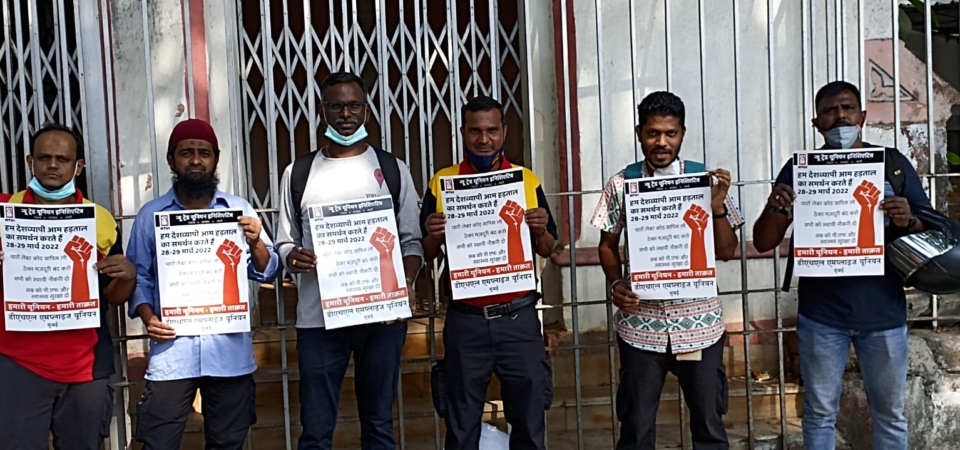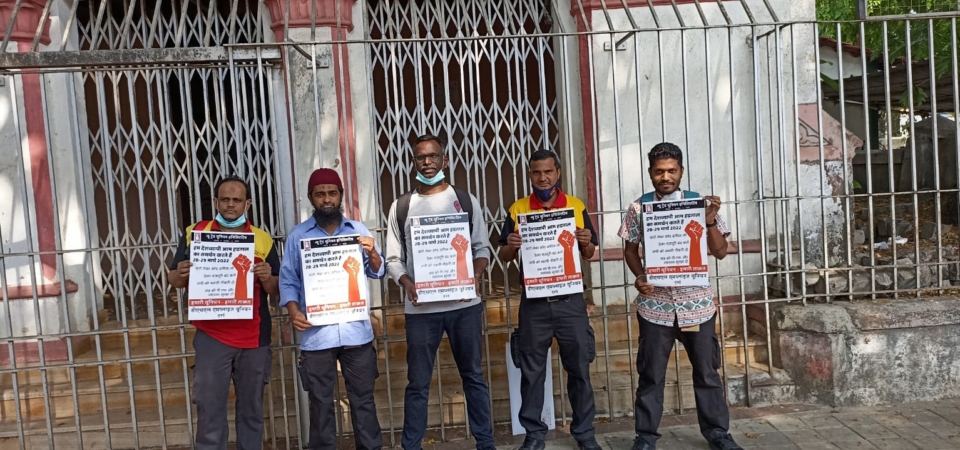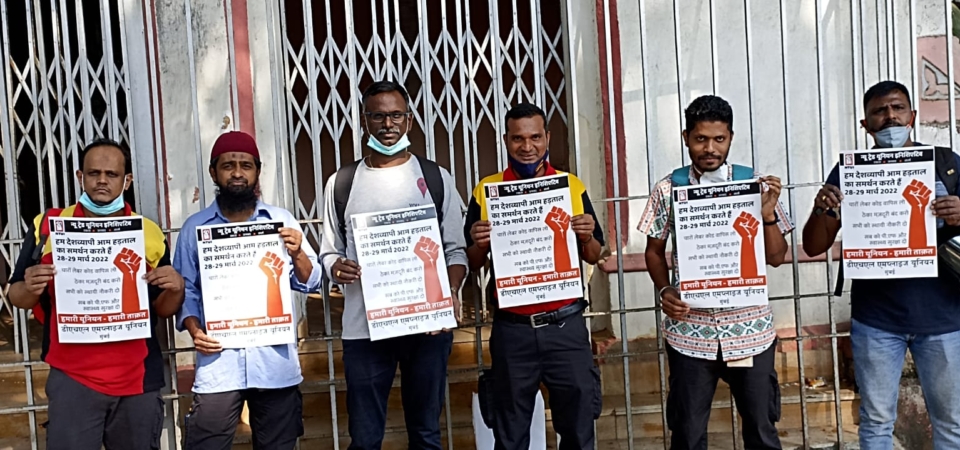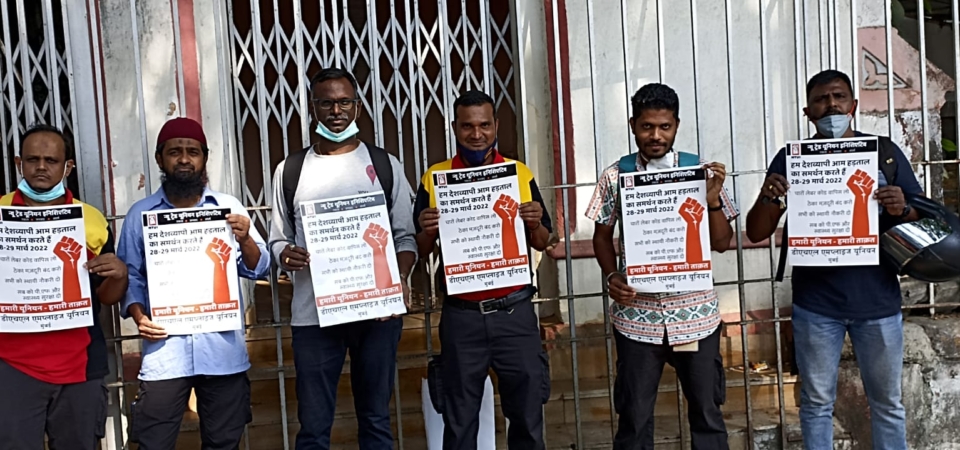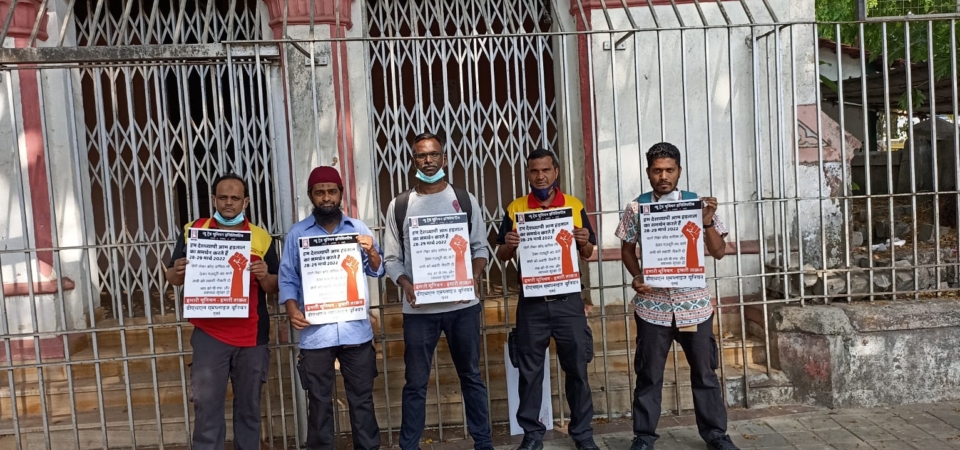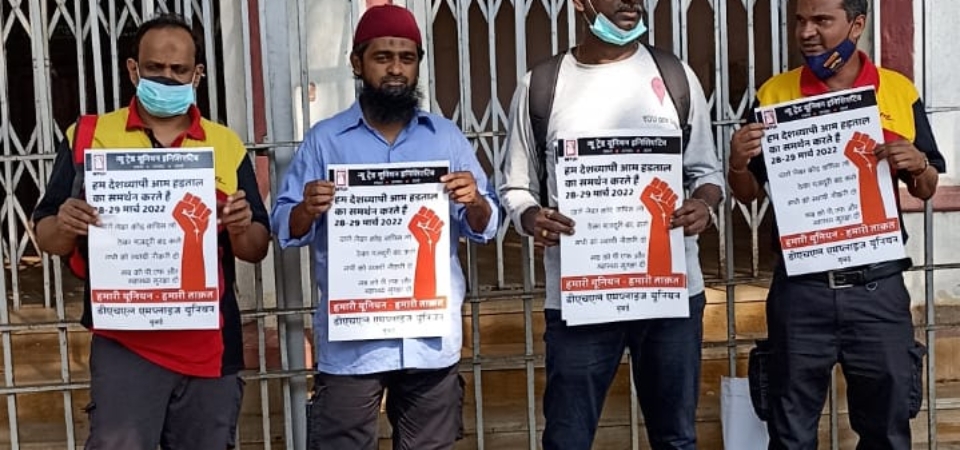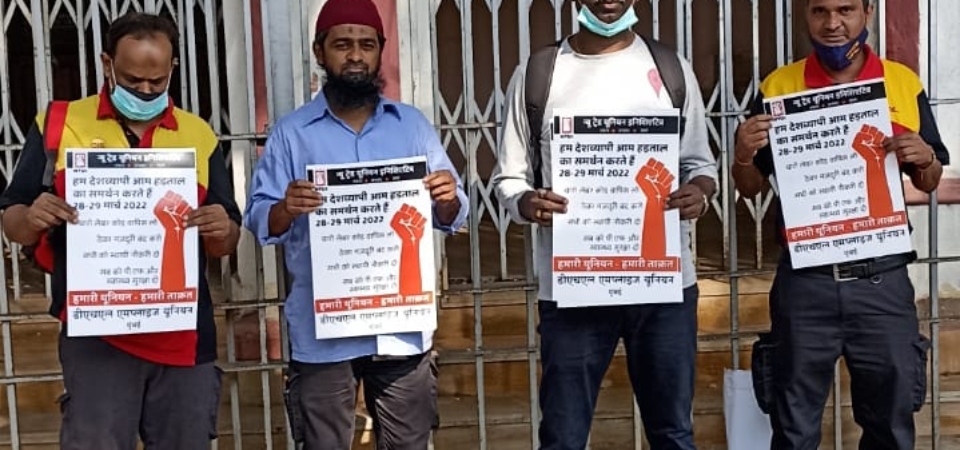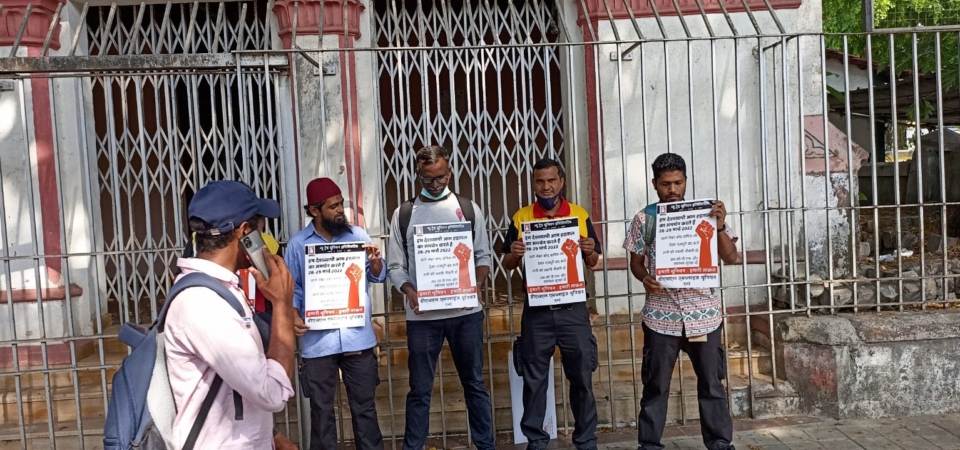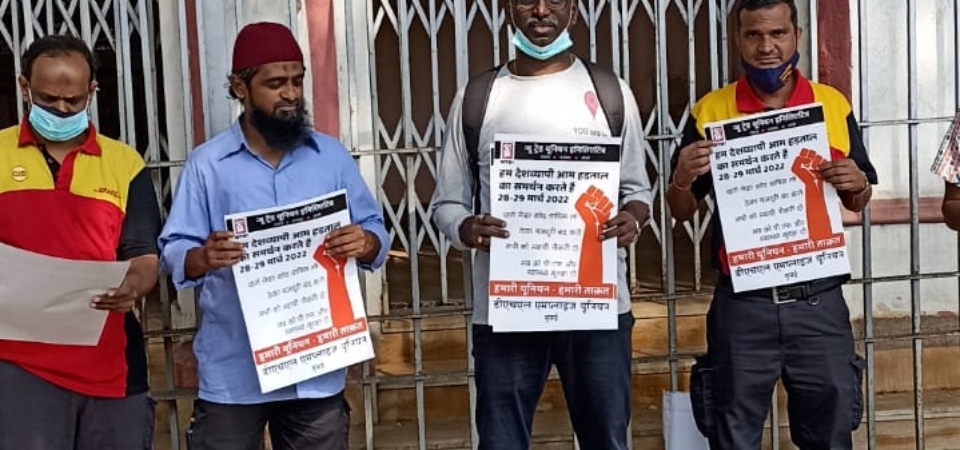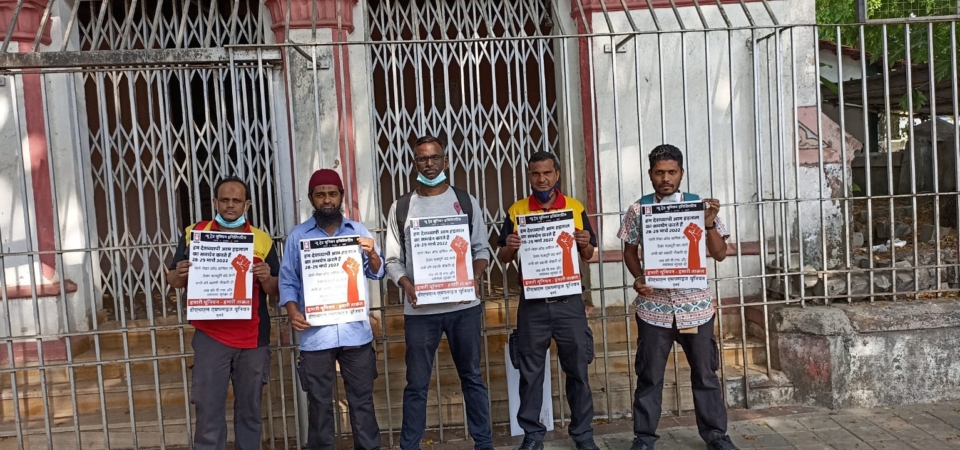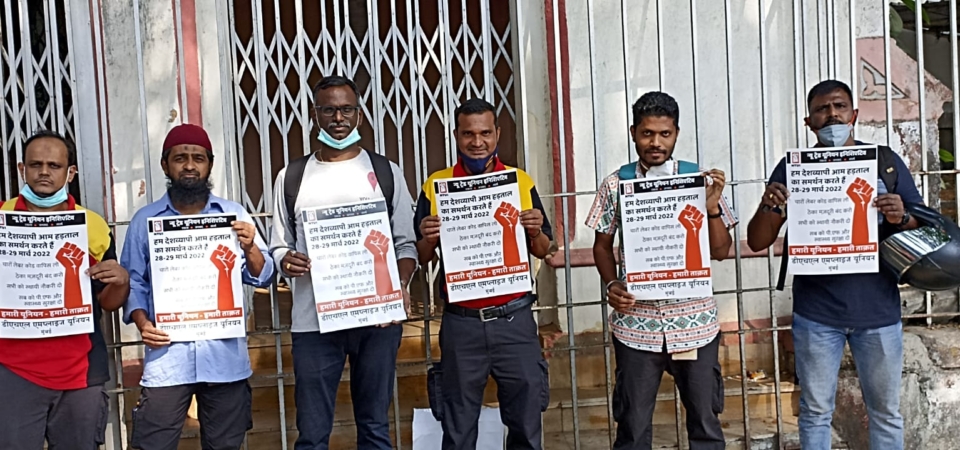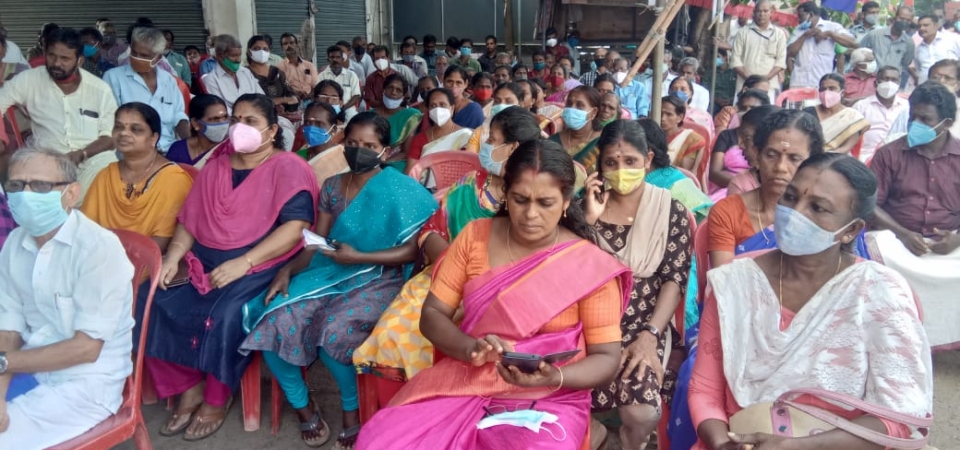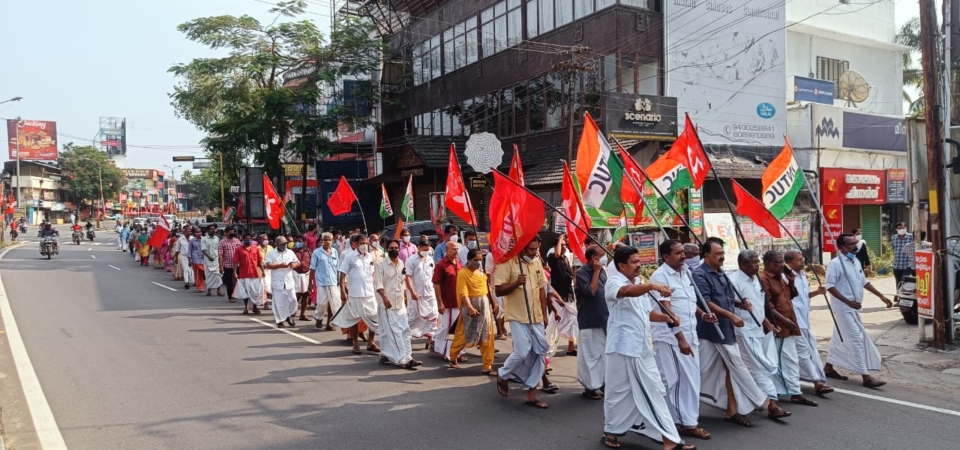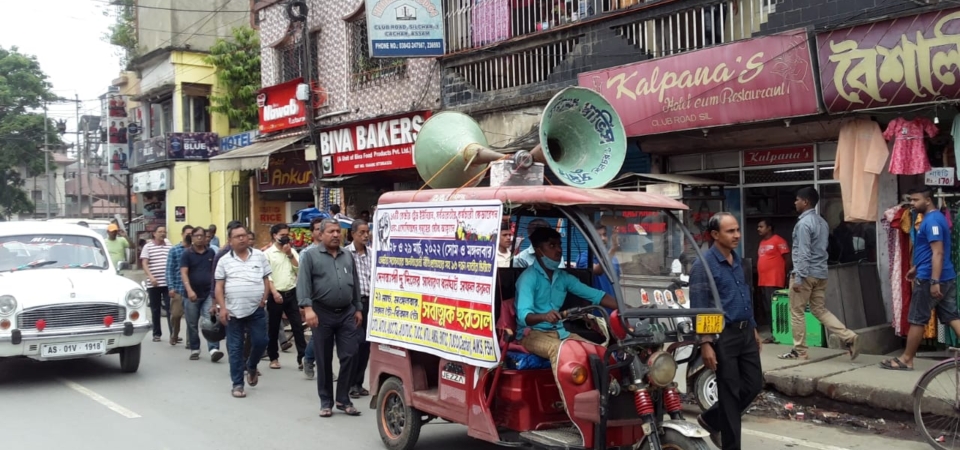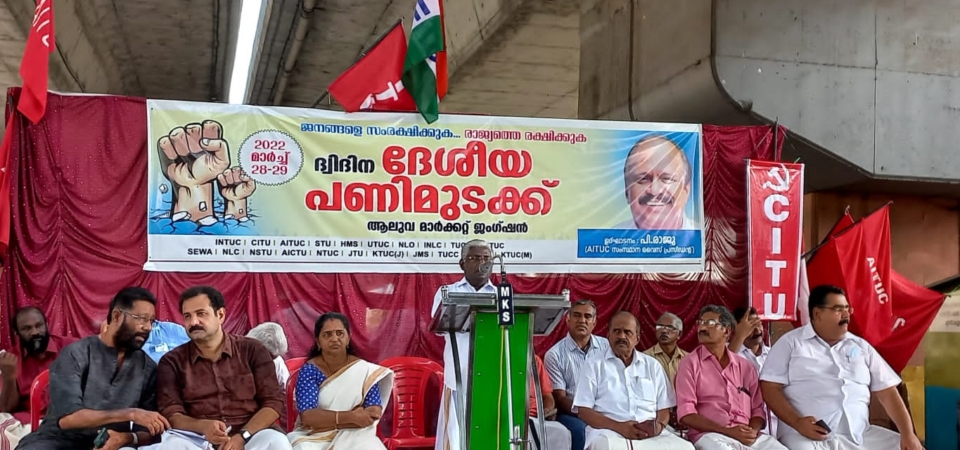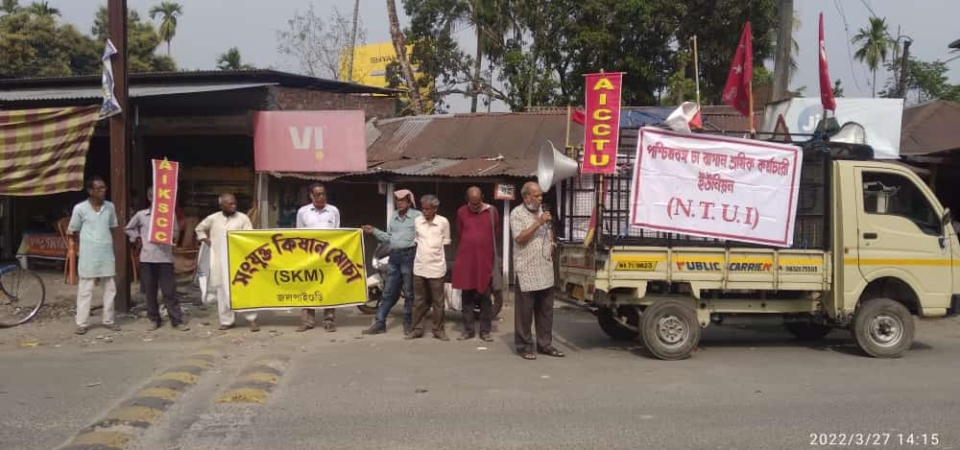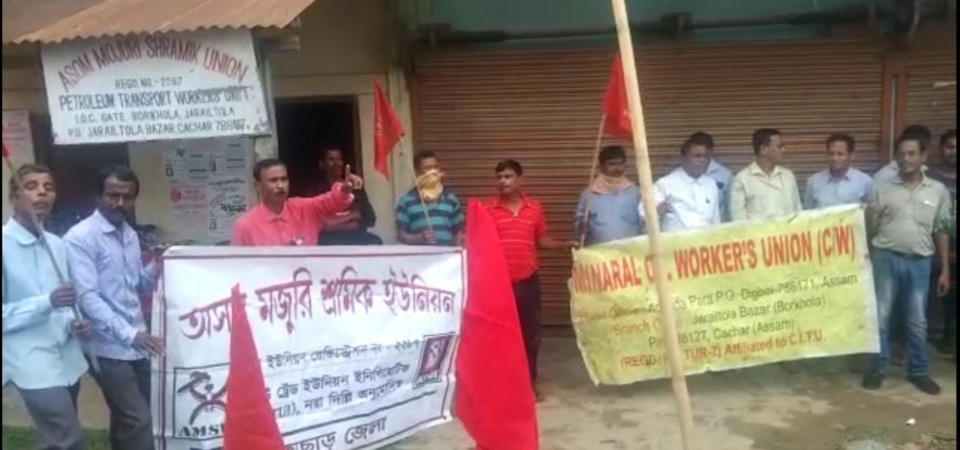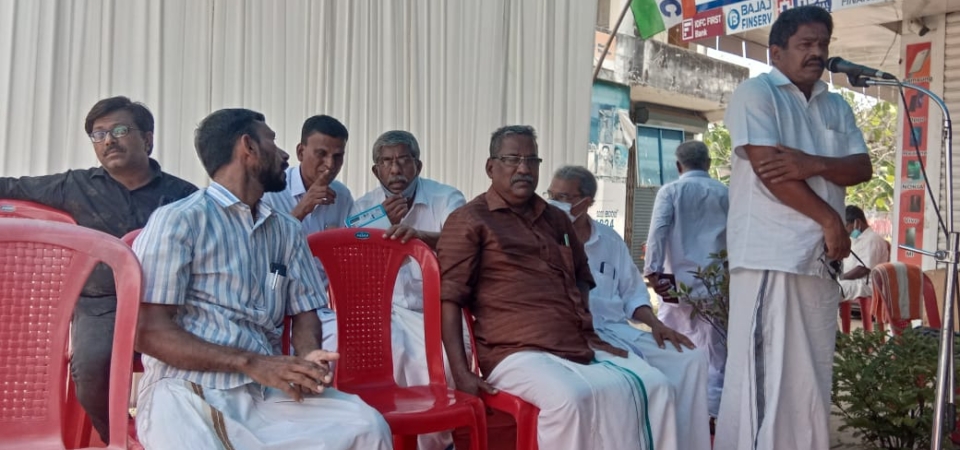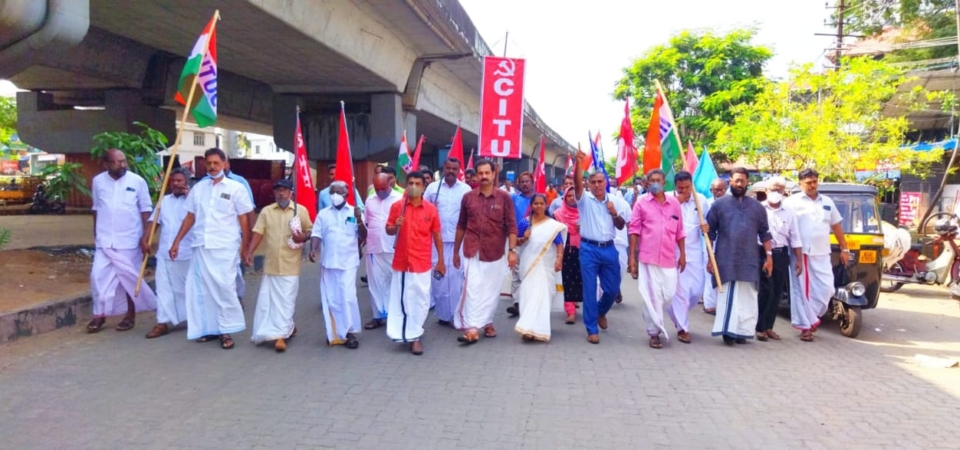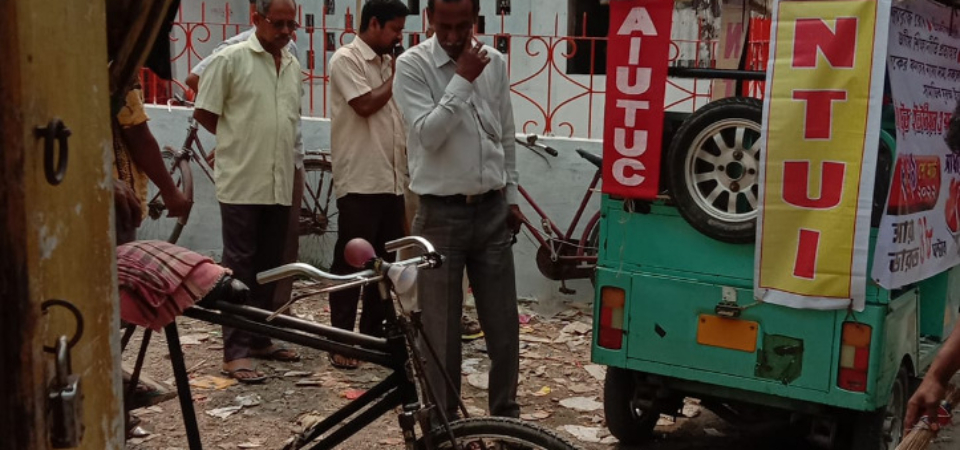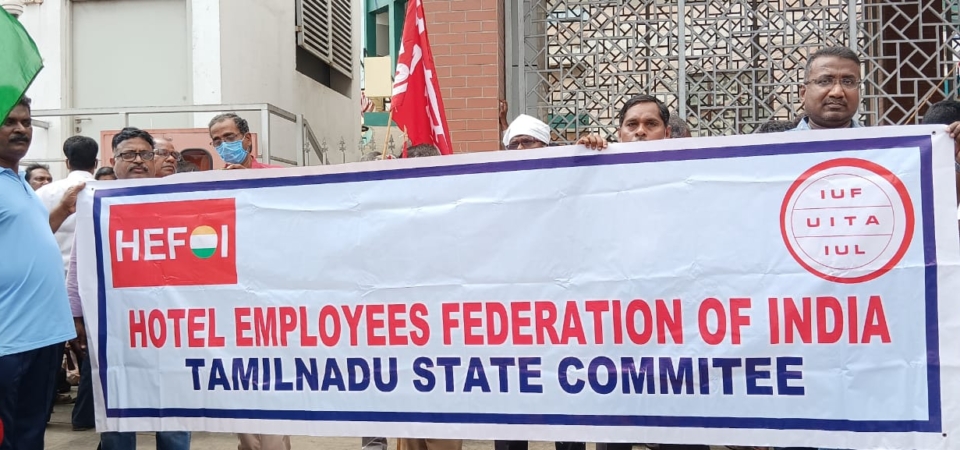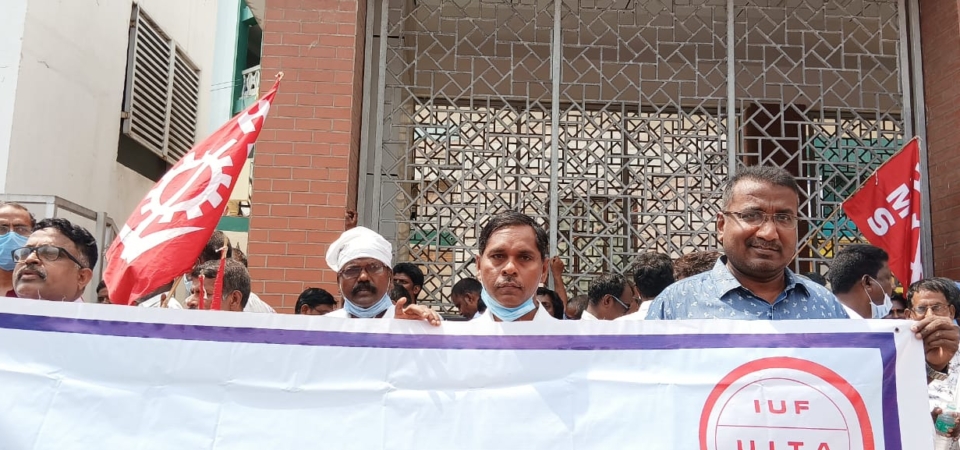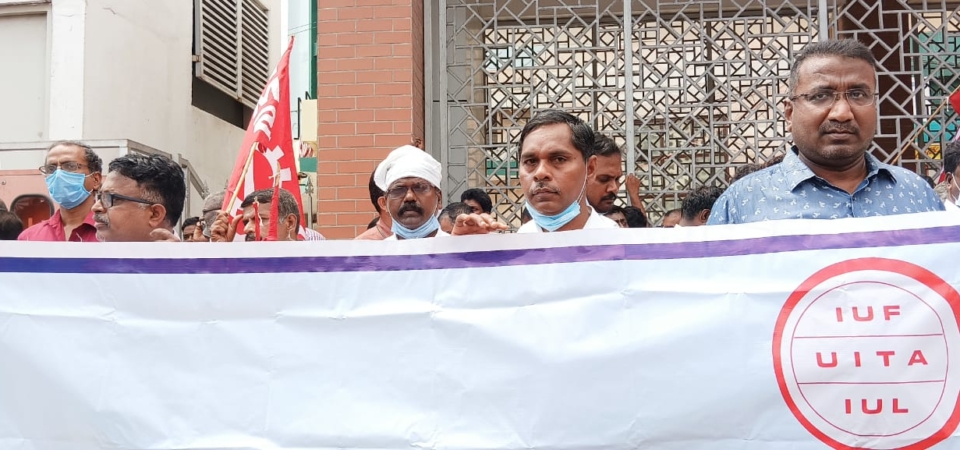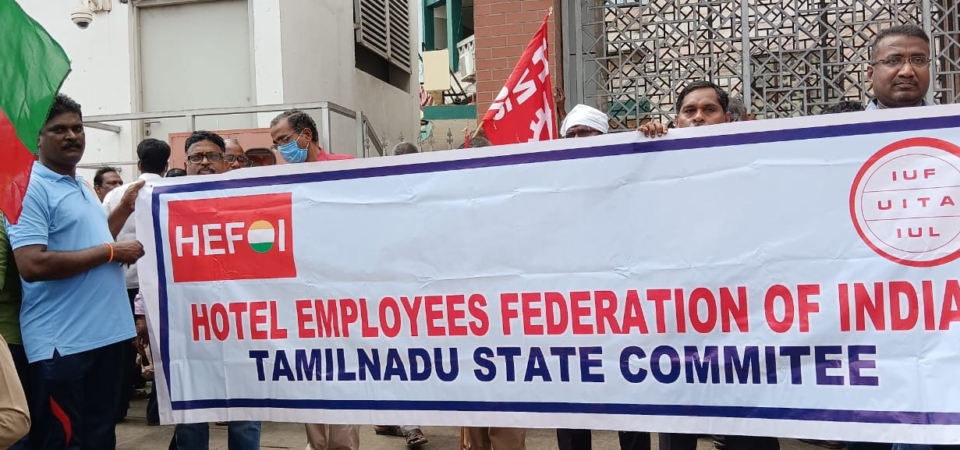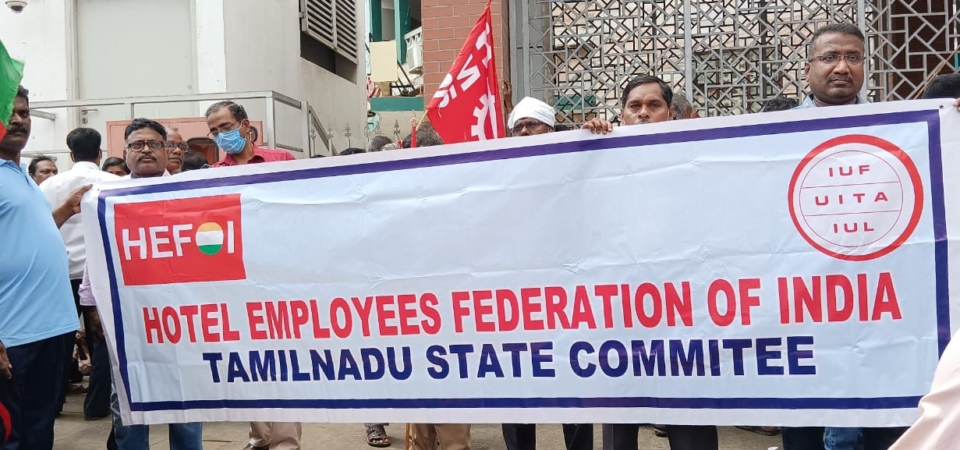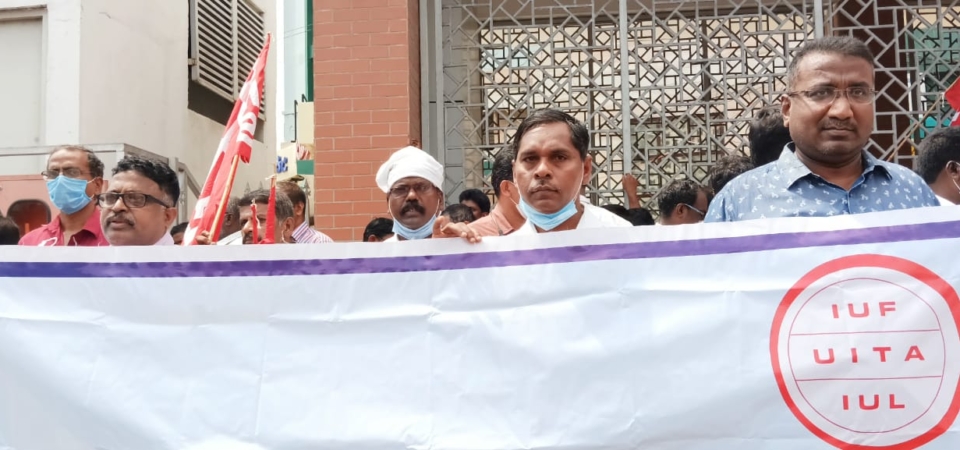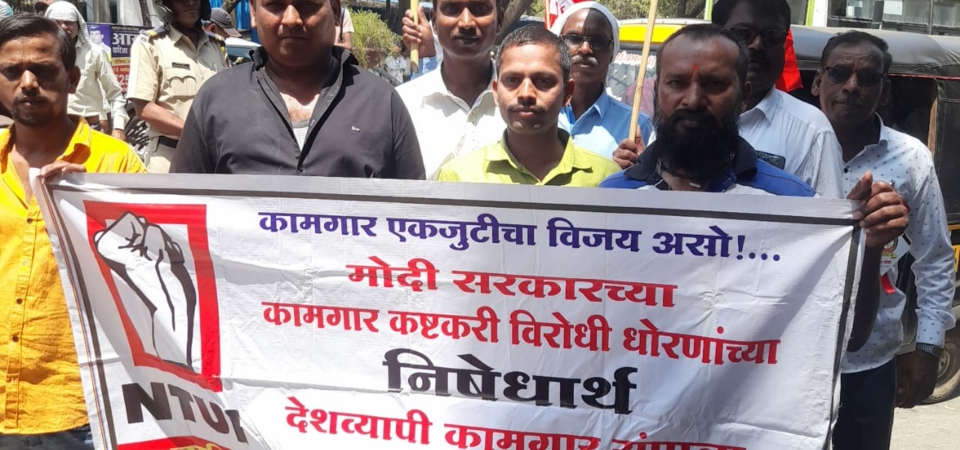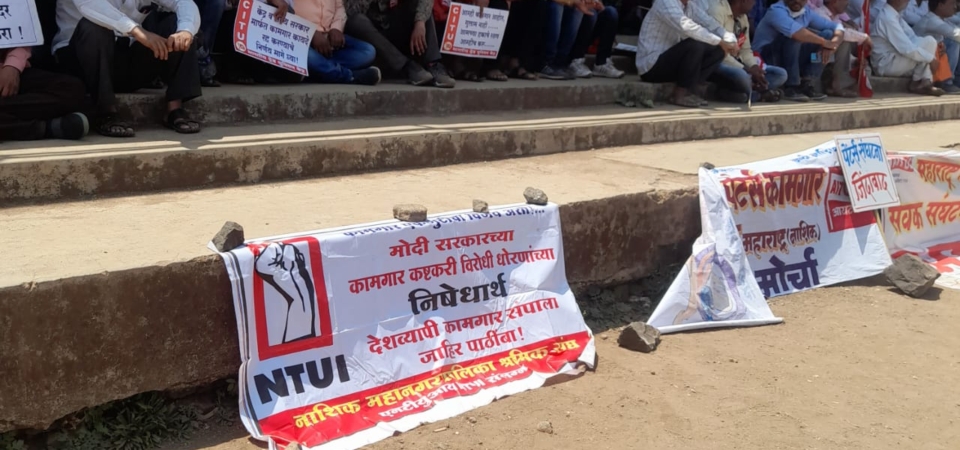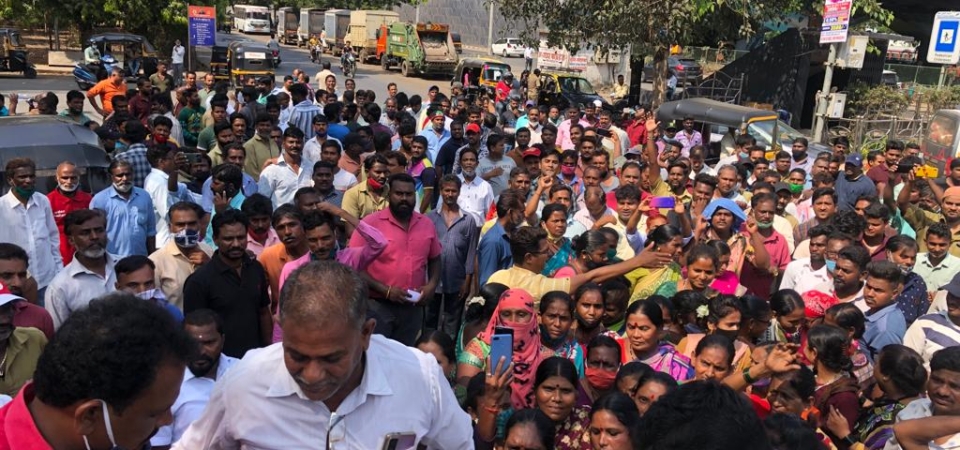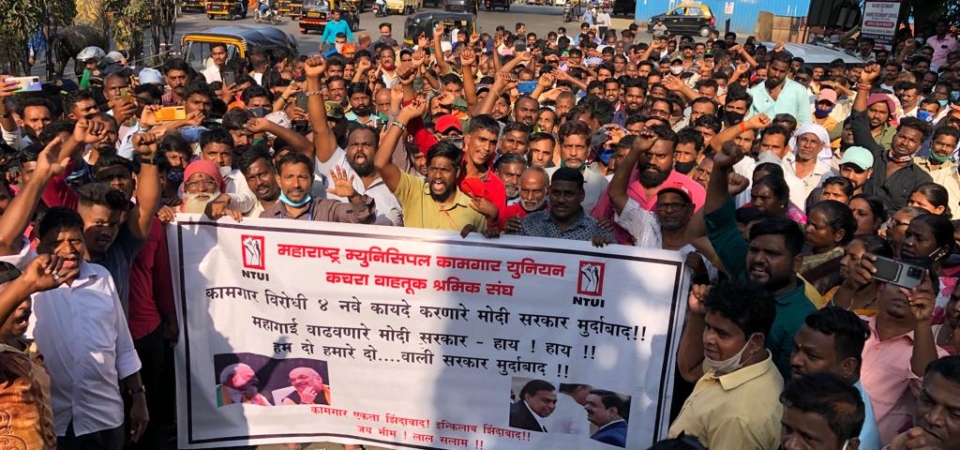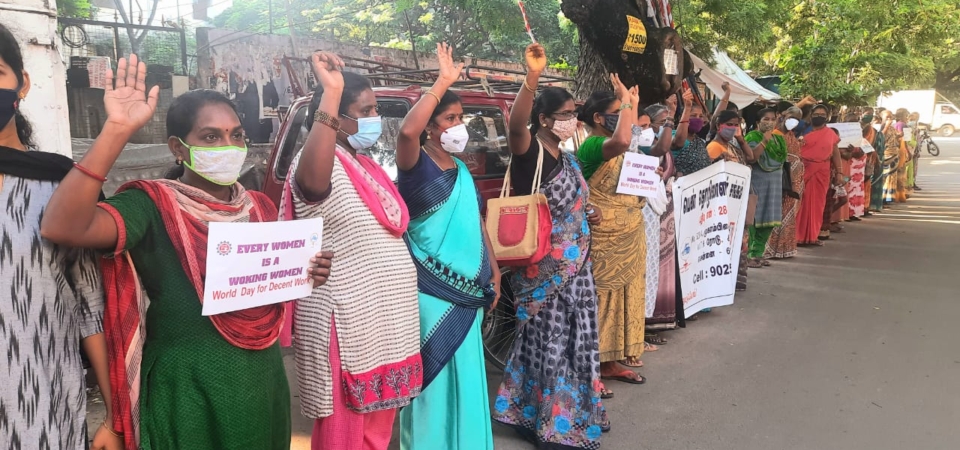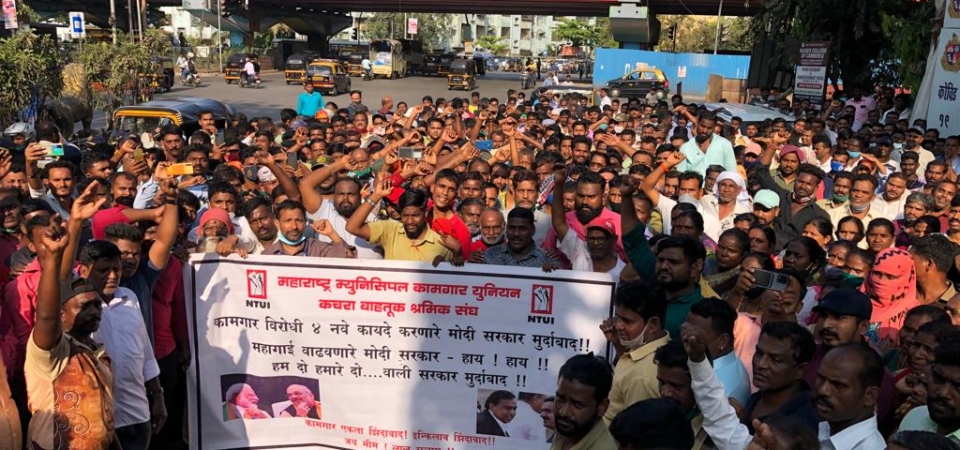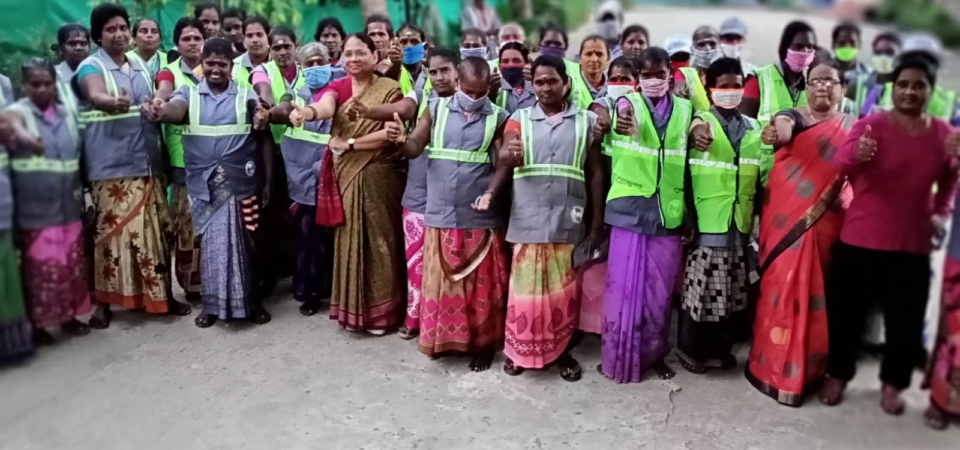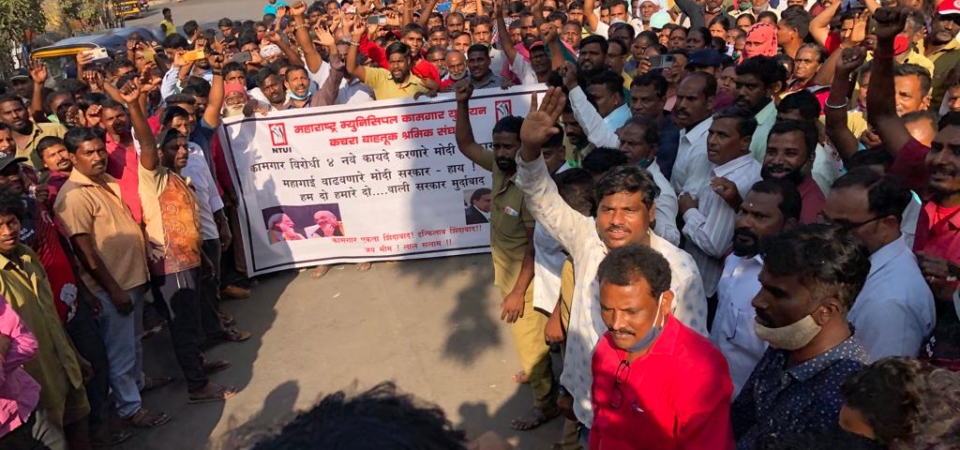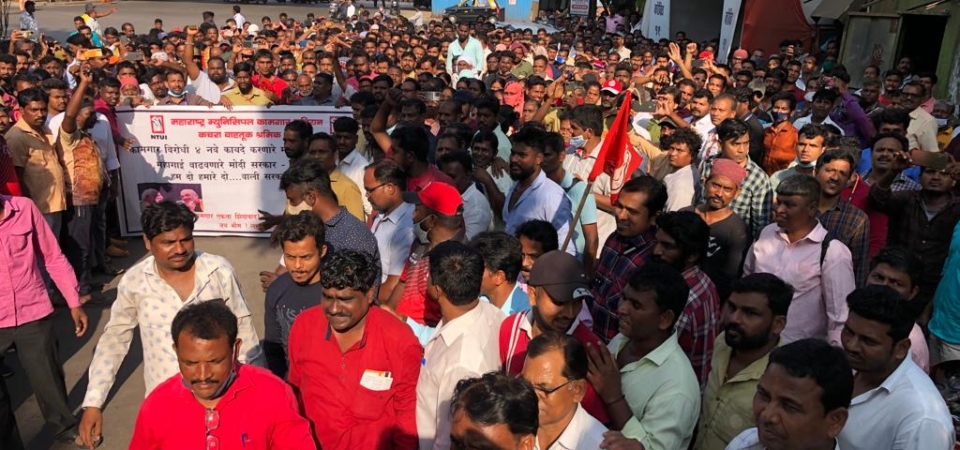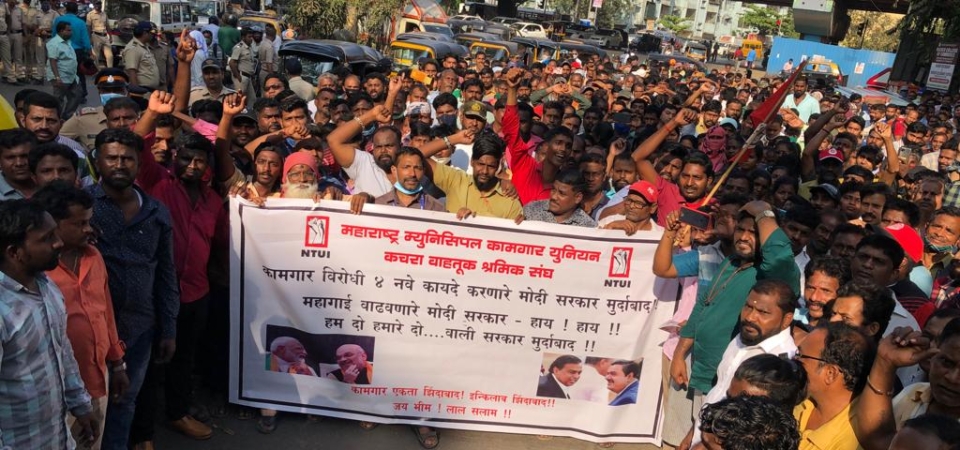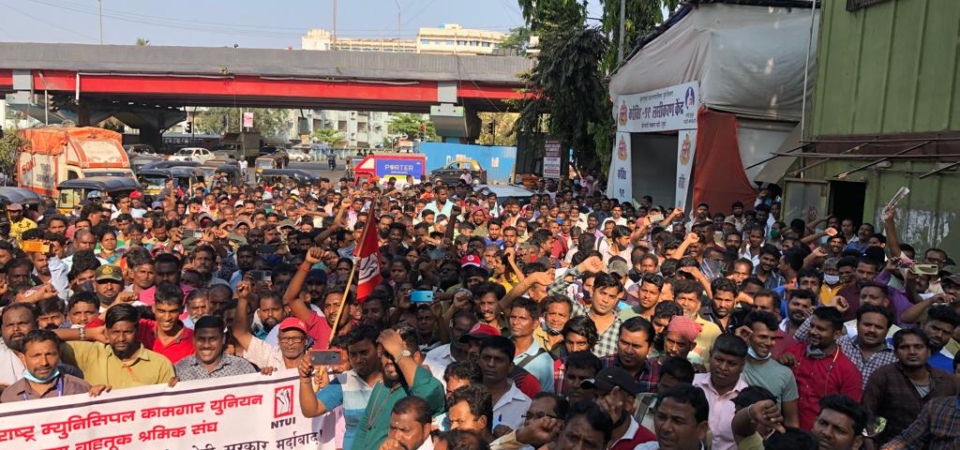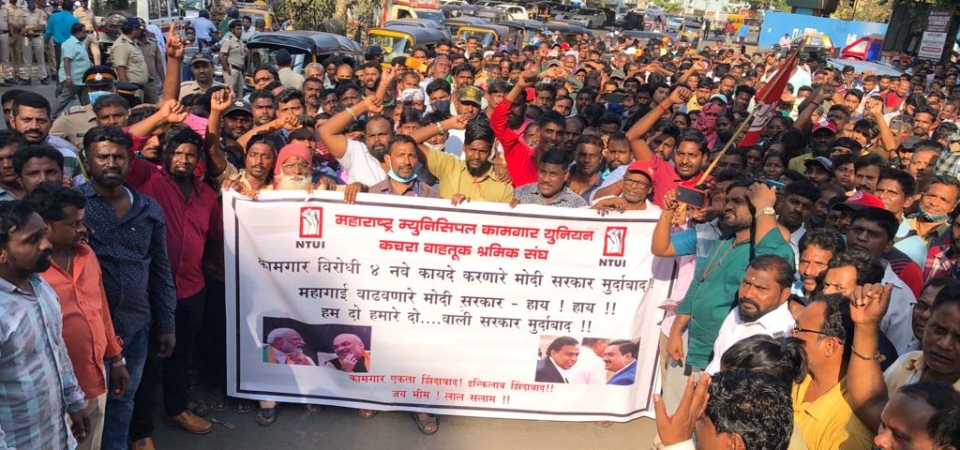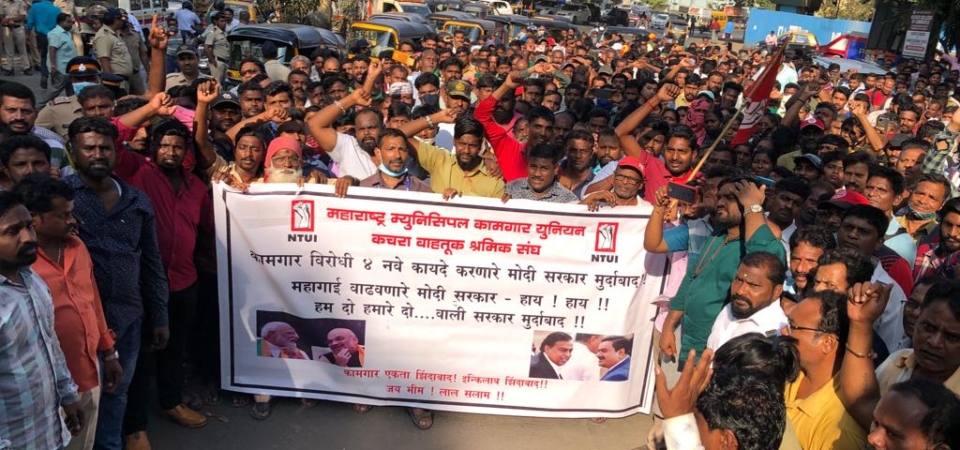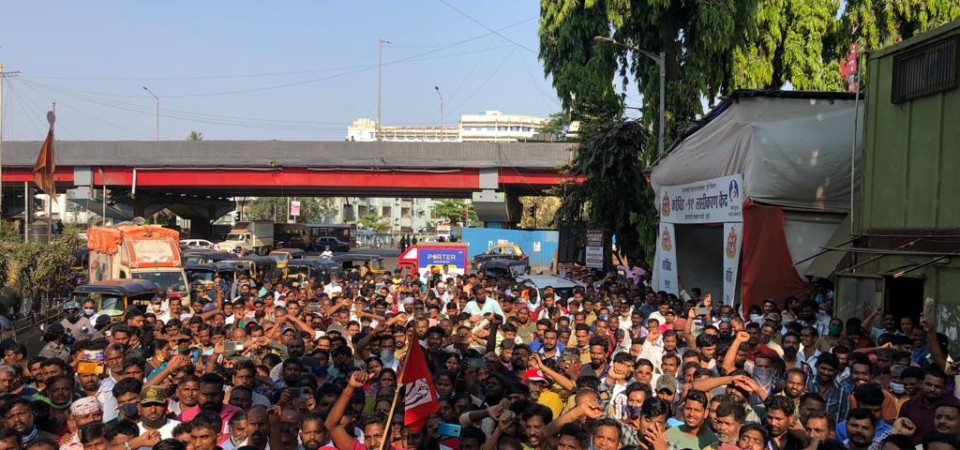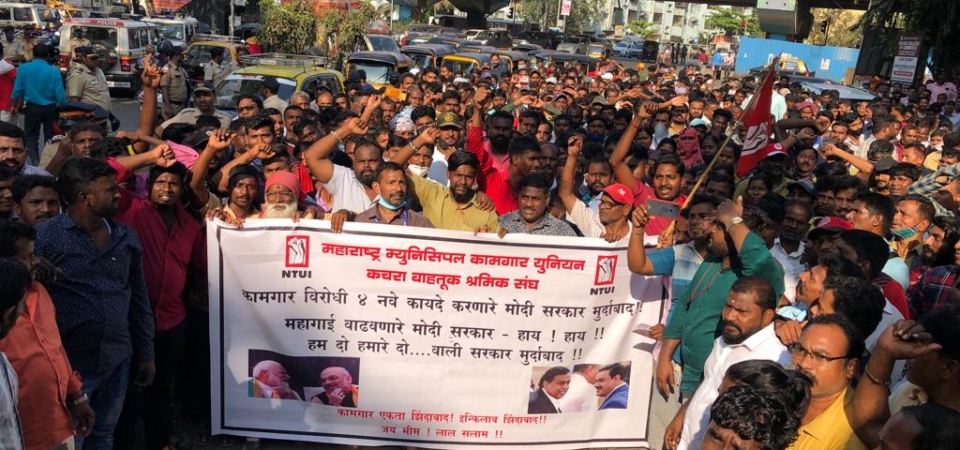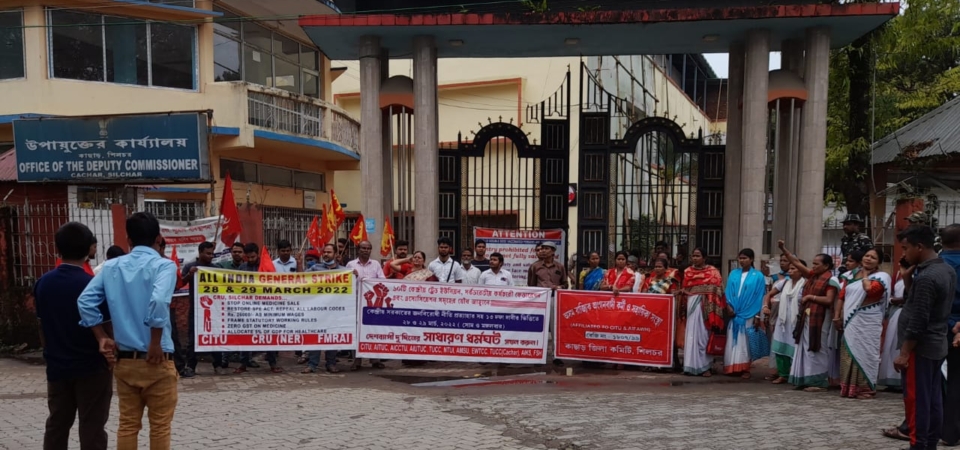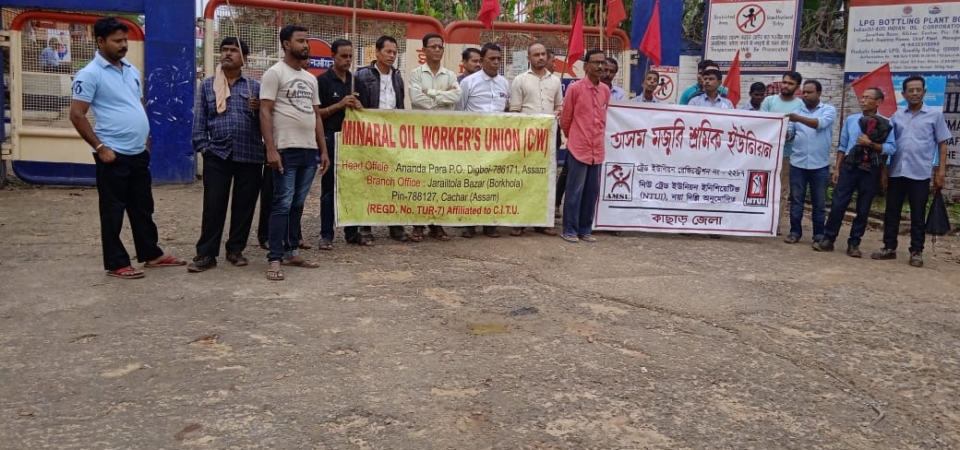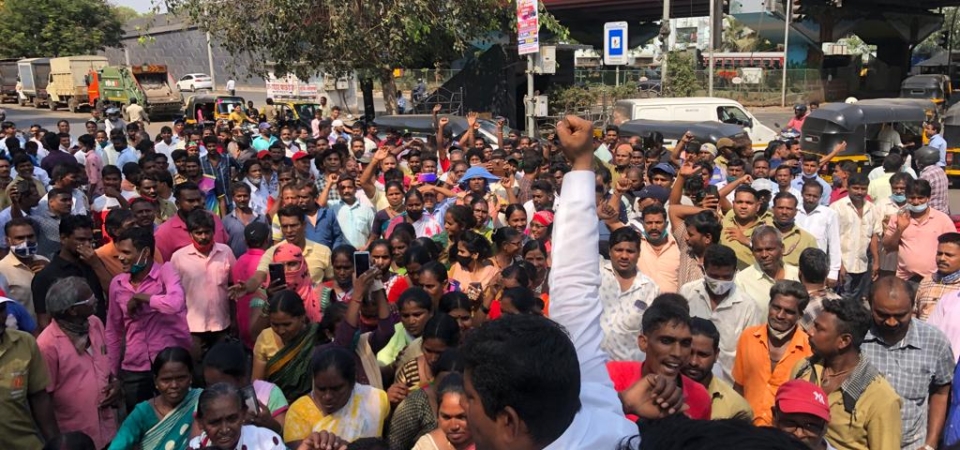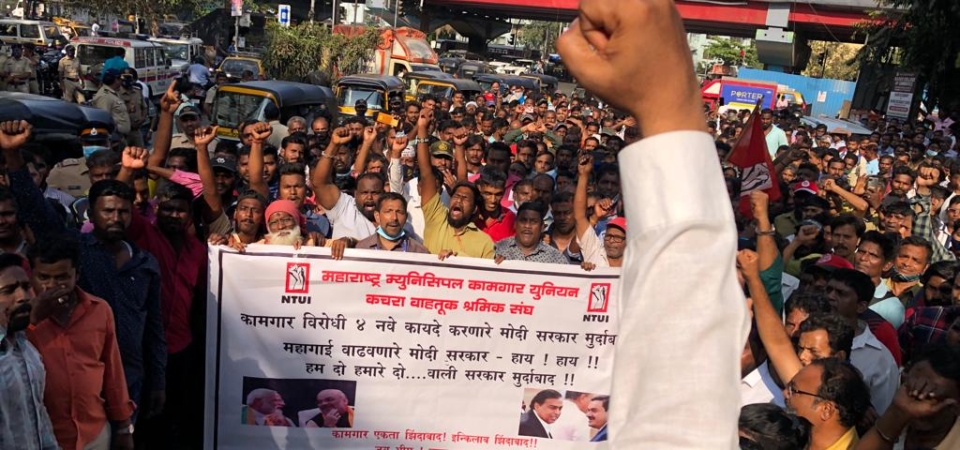29 March, 2022: The New Trade Union Initiative salutes the sections of the working class, across the country and of all trade union organisations, who responded to the general strike call of the central trade union organisations (CTUOs), sans the Rashtriya Swayamsevak Sangh affiliated Bharatiya Mazdoor Sangh, of 28 and 29 March 2022.
The strike call for repealing the four labour codes legislated under the cover of the coronavirus by the Bharatiya Janata Party government, demanding a revival of the economy and job creation through an increase in the minimum and NREGA wage, expanded public investment along with a stop to privatisation of the public sector, expansion and universalisation of social security and regularisation of employment of all workers hired through contract, honorarium and other irregular employment mechanism brought out workers in industrial action in the unorganised and organised sector over the two days.
In Kerala and to a significant extent in Tamil Nadu life came to a standstill although that has as much with union power as it has to do with the tacit support of the political parties in government. Elsewhere in the country it was effective on the back of sheer union power which included notably the city of Kolkata. In other places in the country the effectiveness of strike was limited to pockets with strong and effective trade union power. Significantly activity in many town centres and commercial districts was thin owing to the strike in the financial services establishments reflecting the strength of the militant section of the bank and insurance unions. Unsurprisingly vast sections of the permanent public employees in the manufacturing, transport and logistics services (especially railways and the docks) and government employees (union, states and local) did not join the strike weakening its impact; most notably in the country’s capital city Delhi and commercial capital Mumbai. Public employees were cowed down by the fear of the Essential Services Maintenance Act and court orders against strike action on the first morning of the strike, most notably by the Kerala High Court. When the best off amongst working people stay away from strike action fearing reprisal it brings out the weakness of the political understanding amongst working people and calls upon us in the working class movement to address it. This critical absence, not withstanding, we did witness a militant strike amongst contract and honorarium workers in the public sector and across every shade, size and type of establishment in large sections of the private sector.
The NTUI’s membership joined industrial action across the length and breadth of the country. In the public sector, contract municipal workers in Mumbai and Nashik were at the forefront while in the manufacturing sector in Jharkhand, contract workers at the Steel Authority, Hindustan Copper and Uranium Corporation and at Indian Oil in Assam stood strong. At the other end of irregular jobs our membership amongst Anganwadis, ASHA, domestic and garment workers demonstrated in and around their work places and in town squares in Maharashtra and Tamil Nadu. In Uttar Pradesh we witnessed forest workers coming together with the CTUOs. We did similarly across Assam, Kerala and Tripura amongst construction, contract and rural workers. In Kolkata city our membership, primarily of white collar workers, joined with fraternal militant unions in action whilst in the tea plantations of West Bengal we participated in common action with the CTUOs. In Tamil Nadu our membership amongst manufacturing workers stood out at all major industrial centres and at the joint-demonstration in Chennai‘s city centre. Possibly the most inspiring action was our membership amongst contract electricity workers in Mumbai city who have over the past three years faced the most egregious attack on their basic democratic rights. From the lowest end of the global supply chain where work is extracted from women at the subsistence wage to the highest end of the country’s private sector both Indian owned and multinational [Abbott, Adani Transmission, Amrutanjan, Ashok Leyland, Cadila, DHL, General Electric, Glenmark, Franco, Howden, Macleods, Modi Mundi, MRF, Panasonic, Procter & Gamble, Rane, Raptakos Brett, Sanofi, Serum Institute, Siemens, Simpsons, Sun, Tafe, Tata Steel, Torrent, Ucal, USV, Valeo, Zydus] our membership stood up forsaking their wages and future time off. It is this sense of sacrifice and solidarity that defines our militancy.
Going forward, as we celebrate what the entire working class movement has achieved these past two days, we must also address where we fell short. What more do we do to strengthen union power. What more do we do to increase our strike power.
What we have done is not enough. Not enough to bring an authoritarian BJP government to its knees, not enough to defend the Right to Freedom of Association, not enough to defend democratic rights, not enough to preserve a plural and open society and not enough to win social justice and equity for all.
To get there our organisation will need more debate for a sharper political understanding and higher levels of class consciousness and more preparation to be able to stand up to and fight through harassment, victimisation and violence of murderous employers and a repressive government. This we must do as we say to all progressive trade union organisations: we must, of course, come together in general strikes and common actions but we need to do more. Our unity must mean the meeting of hearts and minds of our class that takes us forward both marching and striking together. It is this unity of purpose that will give the working class the union power to tame global capital and defeat an authoritarian government.
Unity by both marching and striking together is what is needed to defeat the present order.
And that’s when we will strike and strike again and again to build a better world.
Mazdoor Ekta Zindabad!
Inqualib Zindabad!
Gautam Mody
General Secretary

